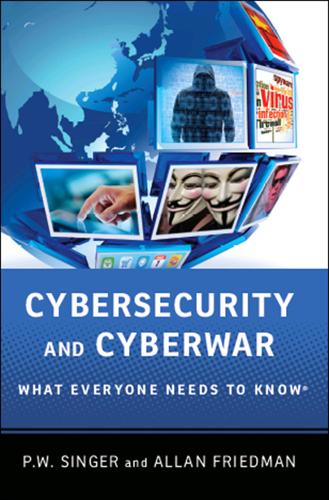
Cybersecurity: What Everyone Needs to Know
by
P. W. Singer
and
Allan Friedman
Published 3 Jan 2014
fb_action_ids=10152174673925385&fb_action_types=og.likes&fb_ref=scn%2Ffb_ec%2Fmonetarists_anonymous&fb_source=aggregation&fb_aggregation_id=246965925417366. endpoint of a conversation The Tor Project, Inc., https://www.torproject.org/, accessed March 17, 2013. Tor built in The Tor Project, Inc., “Tor Browser Bundle,” https://www.torproject.org/projects/torbrowser.html.en, accessed March 17, 2013. circumvent each new technique “How China Blocks the Tor Anonymity Network,” The Physics arXiv (blog), MIT Technology Review, April 4, 2012, http://www.technology-review.com/view/427413/how-china-blocks-the-tor-anonymity-network/.
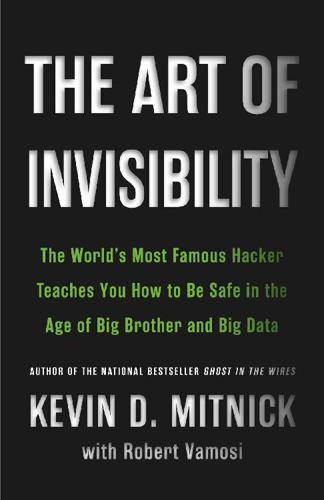
The Art of Invisibility: The World's Most Famous Hacker Teaches You How to Be Safe in the Age of Big Brother and Big Data
by
Kevin Mitnick
,
Mikko Hypponen
and
Robert Vamosi
Published 14 Feb 2017
It is available for iPhone and most major browsers on your traditional PC. It is not, however, available for Android.23 And, at the time of this writing, the Tor project, which maintains the Tor browser (see here), has just released Tor Messenger. Like the Tor browser, the app anonymizes your IP address, which means that messages are difficult to trace (however, please note that, like with the Tor browser, exit nodes are not by default under your control; see here). Instant messages are encrypted using end-to-end encryption. Like Tor, the app is a little difficult for the first-time user, but eventually it should work to provide truly private text messages.24 There are also commercial apps that provide end-to-end encryption.
…
To use Tor you will need the modified Firefox browser from the Tor site (torproject.org). Always look for legitimate Tor browsers for your operating system from the Tor project website. Do not use a third-party site. For Android operating systems, Orbot is a legitimate free Tor app from Google Play that both encrypts your traffic and obscures your IP address.11 On iOS devices (iPad, iPhone), install the Onion Browser, a legitimate app from the iTunes app store. You might be thinking, why doesn’t someone just build an e-mail server within Tor? Someone did. Tor Mail was a service hosted on a site accessible only to Tor browsers. However, the FBI seized that server in an unrelated case and therefore gained access to all the encrypted e-mail stored on Tor Mail.
…
One way for the NSA to do that would be to plant and control what are called exit nodes, the points at which an Internet request is passed to one of these hidden services, though that still wouldn’t allow identification of the initial requester. To do that the government observer would have to see that a request was made to access site X and that a few seconds earlier, someone in New Hampshire fired up the Tor browser. The observer might suspect that the two events were related. Over time, access to the site and repeated access to Tor around the same time could establish a pattern. One way to avoid creating that pattern is to keep your Tor browser connected at all times. In Ulbricht’s case—he got sloppy. Ulbricht apparently didn’t have a plan early on. In his initial discussions of Silk Road, he alternated between using his real e-mail address and a pseudonymous one.
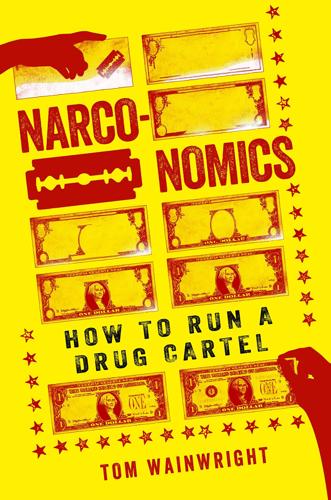
Narconomics: How to Run a Drug Cartel
by
Tom Wainwright
Published 23 Feb 2016
Yet these obstacles have been overcome by technological leaps, which have allowed buyers and sellers to cover their tracks. First of all, sites such as Evolution are hidden in the so-called Dark Web, a part of the Internet that isn’t indexed by ordinary search engines and can be accessed only using special web browsers. The most popular of these applications, called the TOR browser, uses technology initially developed by the US Naval Research Laboratory to carry out a method of subterfuge known as “onion routing.” This bounces web traffic from server to server, creating layer upon layer of encryption like an onion, hence the name. (Hidden websites in the Dark Web have the amusing suffix “.onion,” rather than the more usual .com, .net, and so on.)
…
The world’s foremost digital currency system, Bitcoin works without a central bank, instead relying on networks of computers to generate new “coins” by performing complex mathematical operations in a process known as mining. Setting up a Bitcoin account is a bit of a hassle, but not particularly complicated and, like the TOR browser, the currency is perfectly legal to use. Bitcoin’s value is ludicrously volatile: its price shot up from less than $15 at the beginning of 2013 to nearly $1,000 in November of that year, before falling back to $300 by the end of 2014. But online shoppers can live with this because, like TOR, Bitcoin provides them with a cloak of anonymity.
…
Germany’s finance ministry has recognized Bitcoin as a currency, meaning its users can be taxed. In the United States, the Winklevoss twins, the nearly men of the dotcom boom who claimed that Mark Zuckerberg had stolen the idea for Facebook from them, have poured money into creating a Bitcoin exchange. Most democratic governments have so far been reluctant to outlaw the TOR browser, on the basis that it has legitimate uses as well as nefarious ones. Britain’s Parliamentary Office of Science and Technology has argued against a ban, pointing out that TOR was extensively used during the “Arab Spring” of 2011, as well as by Western whistleblowers and undercover journalists. Attitudes could change if anonymous online marketplaces come to be seen as a real menace, or if they begin being more widely used to plan or fund terrorism.
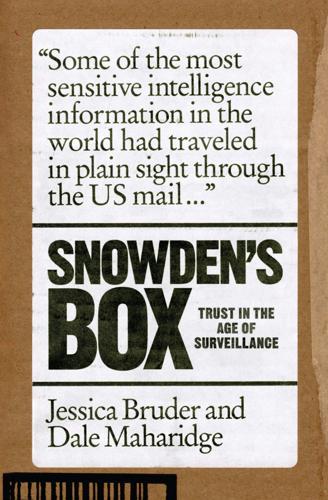
Snowden's Box: Trust in the Age of Surveillance
by
Jessica Bruder
and
Dale Maharidge
Published 29 Mar 2020
If you must open a suspicious attachment, experts recommend that you do it in Google Docs, so any infections don’t end up on your computer. As a prophylactic, consider installing anti-malware software — such as MalwareBytes, which is free — and set it up to scan your machine regularly. If you want to browse the internet without Big Brother as your copilot, consider trying Tor Browser, which routes your online navigation through a network of encrypted relays. Tor doesn’t play nice with advertisers, blocking background scripts and the browser-tracking technologies that follow your every move. When you log off, your browsing history gets wiped out. The downside? All these features make Tor run a bit more slowly than commercial browsers.
…
Manning” pseudonym, 1, 28, 121–2; “Citizenfour” pseudonym, 64–5; commentary on Assange indictment, 130; Gellman and, 41; Greenwald and, 6–7, 44–5, 48–9, 70–4, 75–6; Guardian video, 48–9, 92; middle name gaffe, 56; Micah Lee and, 74–6; Mills and, 80, 133; Moscow, 42, 56, 59, 122, 133; “odds never matter,” 116; “patternrecognition machines,” 131; Poitras and, 20, 22–5, 35–6, 37, 39–45, 55, 62, 72–7, 122–3; posters, 117; public ignorance regarding, 95; public response to revelations, 107, 108, 110; “Restore the Fourth” statement, 85; Timm and, 62–3; trust, 121; USPS use, 1–2, 28, 50, 57–9; Washington Post, 54 Snowden, Lonnie, 124 Soho House Berlin, 117–18 Stasi, 4, 18, 118 State of War (Risen), 40 Stone, Andy, 137 Stop Watching Us, 84 Sullivan, William, 86–7 Tails (operating system), 33, 34, 39, 77, 79, 116, 117, 119 Talen, William. See Reverend Billy Taylor, Stuart, Jr., 91 Three Square Market, 112–13 Timm, Trevor, 62–3, 67, 120 Today (TV show), 105 Tor (browser), 33, 139 Trump, Donald, 10, 11, 57, 95–6, 102, 106 Twitter, 77–9, 97, 141 United Kingdom, 5, 136–7, 144 USA Freedom Act, 93 USA Patriot Act. See Patriot Act US Army, 15, 23 US Census Bureau, 106 US Congress, 8–9, 11, 47, 93, 104. See also Patriot Act; US Senate US Constitution. Bill of Rights.
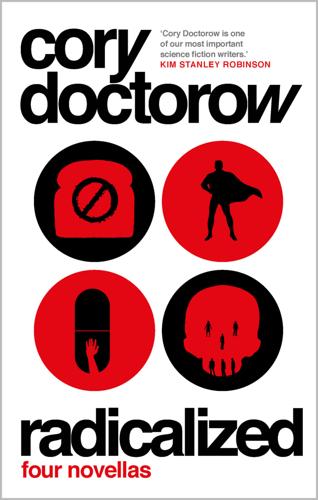
Radicalized
by
Cory Doctorow
Published 19 Mar 2019
Even as he was noticing this, he was thinking of the phone in his pocket and wondering where he could pull over and get online and read the news reports and log into Fuckriff. * LisasDad1990 posted a video explaining what he was doing, but thankfully he didn’t mention Fuckriff. Even so, everyone on Fuckriff was tense as hell and there was a lot of going back and deleting stuff until the cops announced that LisasDad1990 had used Tor Browser extensively and had left behind no browser breadcrumbs, nor any records at AT&T’s data centers. Inevitably, this set off a whole witch hunt over the “dark web” and everyone wondering where the mystery man from the video had been “radicalized.” LisasDad1990 was a soft-spoken, slightly heavyset man with sad eyes and a three-day beard.
…
DeathEater declared that there was only one way to be a Fuckriffer, and that was to meet grief in all of its guises, including rage, to be authentic and true to yourself. DeathEater also announced that the majority of the boards on Fuckriff were moving to a Tor Hidden Service that they’d need Tor Browser to read, and set up a complicated protocol to let them claim their existing IDs on the Fuckriff in the Dark, which is what the new service was called. Joe ignored this for a while. He was even secretly relieved. If all the worst of the worst of the broken Fuckriffers disappeared into the Dark, then he could hang around on the nub that was still visible on the open web, and play fairy godfather and Jiminy Cricket to the people who weren’t beyond help.
…
He took enormous pleasure watching her stuff her face on baked goodies and then sprang for a face-painting. Lacey grumbled a little about the indulgences, but she was clearly very happy to see the old Joe coming back. When Joe woke up at 2:00 A.M. to pee, he autopiloted into the spare room and fired up Tor Browser, heading straight for Fuckriff. All his anxiety about logging in was gone. Here on the other side of the point of no return, there was no reason not to visit his old friends. Things were what they were and nothing he did from now on would make them worse or better. But Fuckriff was gone: both the light and dark versions were 404, page not found.
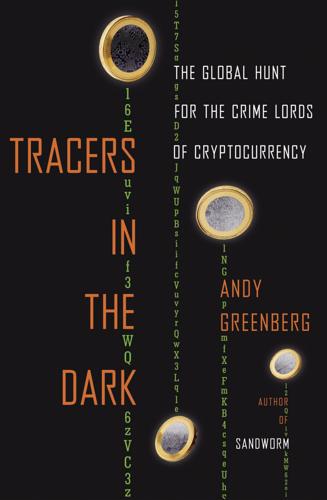
Tracers in the Dark: The Global Hunt for the Crime Lords of Cryptocurrency
by
Andy Greenberg
Published 15 Nov 2022
He got to work efficiently resolving disputes over the site’s drug deals, assisted by a collection of pre-written answers the administrators had helpfully prepared in an online control panel. The undercover agent even came to the rescue of one grateful, sight-impaired drug dealer, helping him figure out how to get his screen reader software properly integrated with his Tor Browser. Ethical quandaries aside, the team couldn’t help but take a certain pride in the professionalism of their work. “The quality really went up,” said the head of the Dutch National High Tech Crime Unit, Gert Ras. “Everyone was very satisfied with the level of service they got.” * * * · · · For their first day acting as Hansa’s bosses, the team had cautiously watched the site’s internal clockwork, almost in disbelief that they’d gotten away with their takeover undetected.
…
The group argued that at least some of those measured “visits” were likely law enforcement undercover agents and “distributed denial of service attacks,” in which hackers flood a site with junk traffic to knock it off-line. CHAPTER 41 “Serach Videos” When Janczewski and Gambaryan first copied the unwieldy web address mt3plrzdiyqf6jim.onion into their Tor Browsers, they were greeted by a bare-bones site with only the words “Welcome to video” and a log-in prompt, a kind of minimalism Janczewski compares to the Google home page. They each registered a username and password and entered. Past that first greeting page, the site displayed a vast, seemingly endless collection of video titles and thumbnails, arrayed in squares of four stills per video, seemingly chosen automatically from the files’ frames.
…
Soon after first registering an account on the site, he thought to try a certain basic check of its security—a long shot, he figured, but it wouldn’t cost anything. He right clicked on the page and chose “View page source” from the resulting menu. This would give him a look at the site’s raw HTML before it was rendered by the Tor Browser into a graphical web page. Looking at a massive block of illegible code, anyway, certainly beat staring at an infinite scroll of abject human cruelty. Almost immediately, he spotted what he was looking for: an IP address. In fact, to Gambaryan’s surprise, every thumbnail image on the site seemed to display, within the site’s HTML, the IP address of the server where it was physically hosted: 121.185.153.64.
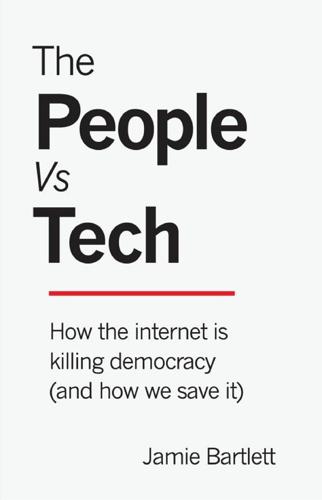
The People vs Tech: How the Internet Is Killing Democracy (And How We Save It)
by
Jamie Bartlett
Published 4 Apr 2018
This is a good thing for individual freedom but a bad thing for law enforcement agencies, who find their scope of work increasing all the time – and who are often helpless to respond. The more connected we are, the more vulnerable we are. A Russian can now steal your money without leaving his bunker in Volgograd. If I were so inclined (I’m not) I could turn on my anonymous Tor browser, jump onto the dark net, fire some ransomware into the world, and wait for bitcoin ransom payments from the unsuspecting internet users who had clicked on my malicious link. None of this requires much in the way of skill or know-how.5 And yet successful prosecution for cybercrime is negligible.
…
However, the more crypto-anarchy spreads, the worse this will become. There are already plenty of crypto-anarchist corners of the internet where the king’s writ barely runs. Silk Road, an anonymous dark net marketplace, was set up a couple of years after the invention of bitcoin. It used the anonymous Tor browser to obscure the location of buyers and sellers, encrypted messaging for communication and bitcoin as a means of payment. Between 2011 and 2013 it processed over $1.2 billion worth of sales, mostly illegal drugs. Although Silk Road was eventually shut down, there are now several other dark net markets, where stolen personal data, narcotics and child abuse images can be bought and sold, Amazon-style.
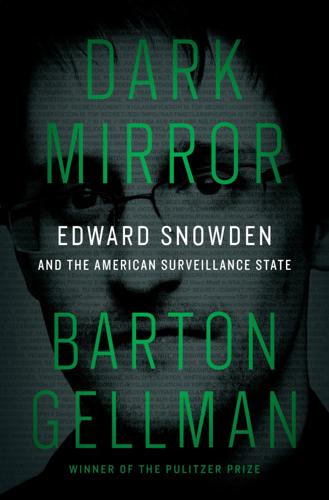
Dark Mirror: Edward Snowden and the Surveillance State
by
Barton Gellman
Published 20 May 2020
For years, the NSA and the GCHQ, its British counterpart, had been banging on Tor, looking for some way to pierce its veil of anonymity. It was a hard target, among the most intractable of the tools available to the public at large. (“Tor sucks,” one NSA presentation slide complained.) In order to make it easier for novices to use, Tor developers had baked their magic into a custom version of Firefox. They called it the Tor Browser Bundle. Now a small team of NSA hackers had come up with a way to see through the browser’s privacy shields. The NSA liked to hire rising stars in computer science and mathematics as interns for a summer or an academic year. Young innovators came up with hacks that old-timers missed, and a taste of life inside sometimes hooked them into postgraduate employment.
…
It was a mark of Snowden’s icy nerves—and the betrayal that some colleagues felt so strongly—that he congratulated the intern and began a correspondence to tease out details. “I read your journal.nsa entry,” Snowden wrote to the intern. “Really great work! This looks like an awesome way to deal with the TBB. I’d like to know more if you don’t mind a couple quick questions.” Did the method rely on prior identification of a target, or could it compromise any Tor browser? Did it work against all operating systems? Were there any browser plug-ins that blocked the exploit? The intern happily entertained the shoptalk. “Thanks!” he replied. “I’ve attached my current draft of slides.” The densely technical, fifty-eight-page presentation laid out the methods and limits of the new exploit, which had the cover name EGOTISTICALGIRAFFE, or EGGI for short.
…
At the moment, the intern told Snowden, NSA operators were deploying it “only against certain extremist web forums,” but he added, “I am under the impression that they can serve up an exploit to pretty much anyone.” EGGI worked on the Windows browser but not on Mac or Linux. It did not work at all if a user switched off JavaScript, a programming language built into modern web browsers. Snowden was safe. He always switched off JavaScript. The Tor browser made that easy enough, but the scripting language was left on by default. Without explaining why, Snowden pointedly reminded me and Poitras in coming months to “disable the fucking scripts.” Snowden kept the conversation going with the intern. He had a pedagogical point in mind, and he wanted to save it for later.

Fancy Bear Goes Phishing: The Dark History of the Information Age, in Five Extraordinary Hacks
by
Scott J. Shapiro
The boards that advertise booter services, as Hack Forums once did, are accessible to anyone with a standard browser and internet connection. They exist on the Clear Web, not on the so-called Dark Web. To access sites on the Dark Web you must use a special network, known as Tor, typically using a special browser known as the Tor Browser. When a user tries to access a website on the Dark Web, the Tor Browser does not request web pages directly. It chooses three random sites—known as nodes—through which to route the request. The first node knows the original sender, but not the ultimate destination. The second node knows neither the original source nor the ultimate destination—it recognizes only the first node and the third node.
…
Consider “market” cybercrimes—the online sale of contraband such as Social Security numbers, identity documents, credit card information, prescription drugs, illicit drugs, weapons, malware, child sexual abuse materials, body parts, and sex. Participation in these illicit markets merely requires knowing how to use a Tor Browser and a cryptocurrency wallet. Similarly, hacking plays no role in garden-variety online fraud, such as advance-fee schemes, eBay scams, spear phishing, whaling, and catfishing. Security theorists call these types of crimes “cyber-enabled”—they are traditional crimes facilitated by computers. Cyber-enabled crimes are distinguished from “cyber-dependent” crimes—such as unauthorized access, spamming, DDoS-ing, and malware distribution—which can only be perpetrated with computers.
…
fourteen gigabits/second: Krebs, “Israeli Online Attack Service.” Hack Forums once did: Brian Krebs, “Hackforums Shutters Booter Service Bazaar,” Krebs on Security, October 31, 2016, https://krebsonsecurity.com/2016/10/hackforums-shutters-booter-service-bazaar/. known as nodes: See generally “About Tor Browser,” https://tb-manual.torproject.org/about. to communicate confidentially: Ty McCormick, “The Darknet: A Short History,” Foreign Policy, December 9, 2013, https://foreignpolicy.com/2013/12/09/the-darknet-a-short-history/. “any impairment to the”: 18 U.S. Code §1030 (a) [(a)5(A)] and (e) [(e)8] 8.
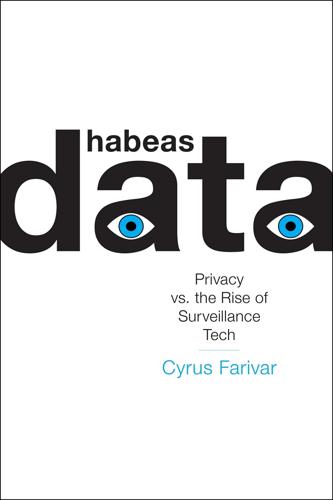
Habeas Data: Privacy vs. The Rise of Surveillance Tech
by
Cyrus Farivar
Published 7 May 2018
The site was only accessible through the Tor Browser, a specialized Web browser that uses a series of technical steps to anonymize one’s footprints online. As such, anyone who accesses a Tor-hidden site (designated by a .onion URL) is very difficult to find out. Playpen’s founder, David Lynn Browning, of Kentucky, was identified in 2015, initially by a foreign law enforcement agency as part of an investigation into yet another child porn website. His IP address was exposed when those overseas cops provided him a “hyperlink to a streaming video” (or, a NIT) configured to go around his Tor browser, which then exposed his true IP address.
…
More recently, a federal judge in Seattle ruled in 2016 that users of the online anonymity tool Tor do not have a “reasonable expectation of privacy in their IP [Internet Protocol] addresses while using the Tor network.” Therefore, a man who the government believed was running an online drug website (Silk Road 2.0) and obscuring his online tracks by using Tor was not searched when the government in effect hacked his Tor Browser to locate him. Katz, in short, has become the bedrock of modern surveillance jurisprudence. It has benefited all of us by expanding our rights against some forms of warrantless government intrusion beyond the four walls of our homes. Thanks to Title III, the government must now clear extraordinary hurdles if it wants to listen in on our voice calls.
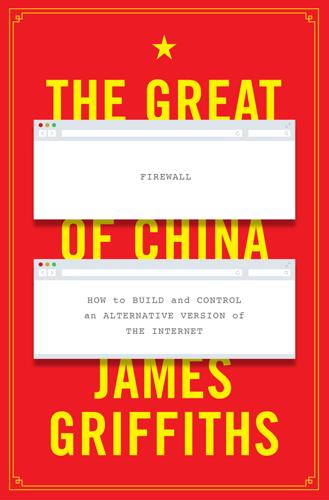
The Great Firewall of China
by
James Griffiths;
Published 15 Jan 2018
FreeNet was developed by Irish programmer Ian Clarke while he was a student at the University of Edinburgh.21 Released in early 2000, it allowed users to host censored or sensitive content on the dark web, that part of the internet not visible to search engines or indexing services. The dark web is now far better known thanks to the proliferation of illegal drug markets such as Silk Road and Agora, which existed parallel to the world wide web but were accessible only by using specialised software, such as the Tor Browser. Tor was originally developed by the US government to help agents avoid detection overseas. It remains one of the most popular anti-surveillance tools, although its effectiveness at avoiding censorship is limited, and both NSA and independent researchers have found serious vulnerabilities that could expose users.
…
Given that the initial users were Falun Gong practitioners in China, most of whom were middle-aged, if not older, and had little technical knowledge, this wasn’t just a point of principle, it was a necessity. The difficulty in using anti-censorship tools for the average person was a common complaint, especially for anonymising services such as Tor, although its developers too have since released the far easier-to-grasp Tor Browser. Having used FreeGate extensively myself when I first moved to China in 2010, I can attest to its relative user-friendliness. It also kept ahead of the censors fairly well in those days, and was able to update itself and keep its servers from being blocked, although there would occasionally be a complete blackout that couldn’t be fixed except by connecting to the open web by another means and downloading a new version of the software (or by acquiring the update from someone else).
…
Index Abbott, Tony, 203 acceptable criticism, boundaries of, 75 Access Now, 236 Adelaide, Australia, 206 Adkins, Heather, 169 Admiralty, camp, 19 Adobe, 170 Africa: China presence, 287–8; Huawei earnings, 304; internet in, 291; Xinhua success, 80 Agora, dark web, 100 Ahmadinejad, Mahmoud, 111 AI software, 200 Ai Weiwei, 170, 214 Albert Einstein College of Medicine, 38 Al-Assad, Bashir, 209 Al-Bashir, Omar, 291 Al-Ghanim, Mohamed Nasser, 231 Algeria, 230 Ali, Guzelnur, 195, 198 Alibaba, 200, 235, 242, 279; Alipay, 281; Taobao online marketplace, 210; Yahoo stake in, 67 Allawi, Ayad, 223 Alphabet, 315 Al Qaeda, 199 American Civil Liberties Union, 245 Amir-Ebrahimi, Masserat, 150 Amnesty International, 280 Andreessen Horowitz, 279 Angola, 289 Anhui province, 78 Anite, Evelyn, 303 Anonymous, 185–6, 188 Anti, Michael, 36, 93, 116 anti-Rightist Movement, Xinjiang avoidance, 133 anti-surveillance tools, 5 Antonov, Polina, 254–5 Antonov, Vadim, 253–4 Apple, 1990s faltering, 277 Applebaum, Jacob, 104–5 APT1, 186–7 Arab Spring, 8, 10, 264, 311 Artux, 132, 134 Asia-America Gateway, underwater cable system, 155 AsiaInfo, 31 Asiaweek, 54 Associated Press, 80 Aum Shinrikyo cult, 49 Australia, censorship, 315 Aximujiang Aimaiti, killing of, 146 Azat, Nijat, 157 baby formula scandal, 204 Badiucao, 175, 178–9, 184, 204–5, 207–8, 211–12, 215; smear attempts, 214; ‘traitor’ accusation, 210; Weibo account deleted, 206 Baidu, 4, 63, 171–2, 242, 260; Baike web site, 210; market share growth, 126; party members, 235; patriotism boast, 124; search engine, 165 balinghou generation, 204 Bandurski, David, 212 Bardin, Valery, 253, 255–6 Barlow, John Perry, 6, 243, 246; utopian language, 7 Barlow, Norman, 243 Barr, Aaron, 185–6, 188 Bastrykin, Alexander, 251 Beach, Sophie, 212 Beidaihe, China resort, 47, 89 Beijing, 29; academia elite circles, 134; Beihang University, 234; Engagement Centre ICANN, 234; jamming signals, 107; Medical University, 37; Niujie mosque, 138; Youth Daily, 73 Berners-Lee, Tim, 252 Besigye, Kizza, 292–3, 295–6; ‘preventative arrest’, 298; treason charge, 299 Big Vs, 180 Bijie, 95 Bildt, Carl, 223 Bingtuan, 134 BitTorrent, 5 Blocked on Weibo, 183 blogging, 93 Bloomberg, 80 Bluetooth, communication use, 19 Brand, Stewart, 244 Brautigam, Deborah, 290 Brin, Sergey, 62–3, 116, 119, 168, 315; family history, 171 Brito, Jerry, 229 broadband connection, 155 Brown University, USA, 85 Burkina Faso, 288 Burkov, Dmitry, 253 Bush, George W., 110, 246 BuzzFeed, 199 Charlie Hebdo, attacks on, 209 Callahan, Michael, 119 Cambridge Analytica, 313, 317 Cambridge University, 162 Canada, 232; Tibet Committee, 85–6 Cankao Xiaoxi, 36 Cao Guowei, 182–3 Carnegie, Dale, 117 Cartoonists, persecution of, 209 Catalonia, 2017 referendum, 316 Causeway Bay, camp, 19 CCTV International, 287 censorship: AI-based, 315; anti-tools, 102–3; in-house, 183; manual, 75; software, 101 Cerf, Vint, 221, 228 CERN, 252 Chan, Connie, 279 Chen Jieren, 171 Chen, Kathy, 312 Cheney, Dick, 243–4 Cheng Jianping, 74 China, People’s Republic of, 137, 204; Academy of Sciences, 49, 51; Africa criticism Western hypocrisy, 290–1; Africa investments, 305; censorship, 27; Central Television, 181; Civil Aviation Administration, 310; courts conviction rates, 198; cyber sovereignty doctrine, 8, 234, 292; cybersecurity law 2017, 280; Cyberspace Administration of, 3; Democracy Party, 41–2, 92; Development Bank, 304;domestic security profits, 201; early internet enthusiasm, 32; elite, 90, 117; elite hackers, 172, 192; entertainment industry, 215; factory sexual harassment, 145; first commercial internet service, 25; globalised online influence, 212; Google compromised, 315; high-speed rail system, 176–7; human rights lawyers, 206; internet companies overseas business, 236; Internet Network Information Centre, 235; Internet Society of, 64; Ministry of Foreign Affairs, 165, 167; Ministry of Public Security, 26; National Electronics Import & Export Corporation, 303; National Defence Daily, 153; nationalised internet, 231; Netcom Communications, 31–2; official aid budget, 289; PLA, see below; Qigong Science Research Society, 48; Qing Empire era, 205; social credit system, 281–3; State Council, 42, 11, 181, 241; tech firms security contracts, 200; Telecom, 30–1, 156; telecoms buying, 30; 2008 Olympics, 180; UN advocacy, 233; Unicom, 156; US Embassy in, 180; -US relations, 109; WTO joining, 91, 92; Youth Daily, 64, 172 China Digital Times, US-based, 76 ChinaNet, 30 Chinese Communist Party (CCP), CCP, 8, 42, 74, 288; internal politics, 312; Politburo Standing Committee, 165 Chinese Golden Shield, 104 Chinese Institute of Computer Applications, 24 Chinese People’s Political Consultative Conference, 77 choke points, China internet, 29 CIA (US Central Intelligence Agency), 85, 161; Q-Tel venture capital arm, 108 circumvention tools: Tor, 101; user lack, 71 Cisco, 29, 32, 115, 119, 236, 304; basic filtering technology, 32 Citizen Lab, 159–60, 163–4, 276 Civic Square, Hong Kong, 15, 17, 20; pro-democracy rally 2014, 16 ‘civilized behaviour’, as censorship, 240 Clarke, Ian, 99 Clinton, Bill, 43, 246; China internet optimism, 42 Clinton, Hillary, 173, 211, 264 CNET.com, 84 CNN, 56–7 Coca Cola, 187 Cohen, Jared, 111 Cold War, 106 collective action, China surveillance attention, 74 Columbia Law School, 241 Comey, James, 190–1 Comment Crew, 187 Communications Decency Act, USA, 245 Communist Youth League, 171 “Complete IT Intrusion Portfolio”, 293 Confucius Institute, 288 Connaught Road camp, Hong Kong, 17 Contemporary Business News, 64 Crimea, Russian invasion, 267 CQRS, 49 Crowley, P.J., 111 Cuba, 237 Cultural Revolution, 8, 23, 24, 48, 176, 205; Xinjing avoidance, 133 ‘cyber-sovereignty’, China doctrine, 8, 234, 237–8, 242, 250 Cyberspace Administration of China, 181 Da Cankao, 35–6, 79, 91, 93, 97; back issues, 100; defeat of, 92; first issue, 39 Dalai Lama, 84–5, 87, 160, 206, 309; office hacked, 162 Darfur, 291 Deibert, Ron, 159–60 Delta Airlines, 309 Democracy Forum, 65, 66 Democratic National Committee, Russian hacking of, 192 Demos/Relcom, Russia, 252–3, 255–6 Deng Xiaoping, 21–4, 47, 89; martial law declaration, 37 Dharamsala, 85–8, 160, 163, 276; internet, 84, 160 ‘digital divide’, 222 Dilshat Perhat, 150 Ding, James, 30–1 DIT, Broadcasting Board of Governors, 108 Diyarim.com, 150–1, 157 Djibouti naval base, 289 domain name system (DNS), 220 Dorsey, Jack, 111 dot.com bubble, first, 84 Dourado, Eli, 228–32 Dow Chemical, 170 Dow Jones, 81 Downey, Brandon, 314 Dreazen, Yochi, 110 DropBox, 276 Drummond, David, 61–2, 171 Dunhuang, 154 Durov, Pavel, 259–63, 265–6, 268–9, 272; Dubai exile, 270; flight, 267 Dynamic Internet Technology, 104, 106–7; Broadcasting Board of Governors, 108 DynaWeb, 101–2; Foundation, 106 Dzungaria, 136 ‘East Turkestan’, 136, 149; question of, 152 Eastern Buddhas Study Falun Dafa Association, 97 Education Computer Resource Centre, India, 86 Egypt, 230–1; Twitter, 264 Eiffel Tower, website crash, 2 Electronic Frontier Foundation, 244–6 elite, Chinese, 90, 117 email address grabbing, 35 encryption, 268–9 Epoch Times, 96–8 Epstein, Helen, 297 Ethiopia, 10, 289, 304 EU (European Union), WSIS stance, 223 Eudora, 88 Eximbank, 288 Facebook, 18, 242, 264, 282, 286, 297, 301, 303, 312–13, 317; banned, 183; censoring by, 314; Firewall blocked, 259, 278; Internet.org, 291 ‘fake news’ panic, 311, 314 Falun Gong, 9, 28, 45–6, 49, 59, 62, 91, 96, 102, 107–8, 112, 118; anti- campaign, 48, 58; blocking of, 99; China mass detentions, 54; community, 103; CRQS withdrawal, 51; members self-immolating, 56; -neoconservatives link, 98; North America shift, 96–7; online censorship, 55; origins, 47 Research Society, 54 FalunDafa.org, 97 Fang Binxing, 249–50 FBI (US Federal Bureau of Investigations), 186, 190–1 FDC (Forum for Democratic Change, 294–6, 300 Ferzat, Ali, 209 filters, border, 29 financial crash 2008, 8, 289 FinFisher, 293, 294 FireChat, 19 FireEye, 192 foreign media coverage, importance of, 255 France, Rwanda Hutu aid, 291 Freedom House, 104 FreeGate, 95–6, 103, 105, 107–9, 110, 112–13; successful, 104; user-friendly, 102 FreeNet China, 99, 101; 2001 launched, 100 freetibet.org, 163 Friedman, Tom, 90, 246 Friendster, 260 Friends of Tibet, 308 FSB, Russia, 265–6, 269 Fuyou Street, Beijing, 45 Gaddafi, Muammar, 290 Gallagher, Ryan, 314 Gamma Group, 293 Gang of Eight, USSR, 254–5 Gauthier, Ursula, 199 George Mason University, 228 Geshe Sopa, 84 Ghost Remote Administration Tool (Gh0st Rat), 162–3; hackers, 164 Gilmore, John, 244 Github, DDos attack, 1–4, 310 global governance, cycles of, 236 Global Internet Freedom Consortium (GIFC), 102, 110; funding boom, 109; projects, 112 Global Internet Inc, 106 Global Times, 172 GoAgent, 5, 6 Golden Shield project, 26–7, 91 Goldsmith, Jack, 30, 219, 243 gongfu, Chinese martial art, 48 Google, 64, 113; 2002 blocked, 91, 2006 China attitude, 115, 2009 accusations, 167, censorship compliance, 118, censorship reversal, 172, China ‘foreignness’ accusation, 125, China blocked, 166, China brand, 117, China cultural errors, 126, China operating, 116, China strategy, 119, Chinese-language search engine, 62, Congressional hearing, 120, 124, cultural mistakes, 125; Dragonfly, 314, Google China, 61, 62, 165, 246; Google Drive, 162; hacked, 168, Schrage accusation, 121, shareholder critique, 168, US criticism, 173, US media criticism, 115 Google.cn search engine, 117 Gorbachev, Mikhail, 75, 173, 252, 255–6; KGB detained, 253 Gordon, Richard, 176 Gore, Al, 31 government commentators employed, 213 Grateful Dead, 244 Great Cannon, China cyber weapon, 3–4 ‘Great Firewall’, 5, 8, 9, 26–7, 29, 43, 46, 58, 66, 71, 90, 92, 99, 101, 107, 112, 117, 159, 199, 207, 242, 311; Cisco help, 116; costs of fighting it, 106; export of, 10; Google brief ejection, 124; international spreading of, 310; keywords detection, 28; Kremlin copy, 260; Uganda import, 287; upgrading of, 92; US components, 30 Great Hall of the People, 23 Great Leap Forward, 8, 138; Xinjiang avoidance, 133 Great Wall, historical, 25 GreatFire.org, 3–4 ‘Green Dam Youth Escort’, 27, 98 Greenwald, Glenn, 268 Group of 77, 237 Gu Ge, name error, 125 see also NoGuGe Guangdong, 143, 201 Guangxi, 78 Guangzhou, 29 Gulf of Aden, 289 Guo Wengui, 92 Guomindang, 49 Guonei Dongtai Qingyang, 79 Haig, Dan, 83–4, 86–8, 160 Hainan, Lingshui: signals intelligence, 164; servers in, 163 ‘Harmony’ CCP-speak, 72 Harris, Rachel, 151 Harvard, 71, 74, 91; Law, 244 HBGary Federal, 185–6; hack, 188 He Guoqiang, 171 He Zuoxiu, 49 Hefei, anti-corruption case, 280 Hinton, Carma, 176 Hitchens, Christopher, 49 Hoglund, Greg, 186 Holder, Eric, 189 Holdstock, Nick, 137, 149 home routers, 217 Hong Kong: Admiralty, 18; Broadband, 155; Chinese University, 217; Civic Square, 15; independence discussions, 20; Internet Exchange, 217–18; parliamentary elections, 19; Science Park, 200; 2014 effect, 19; Umbrella Movement, 255 Horowitz, Michael, 107, 109 hosts.txt file, 219 HP corporation, 245 Hsu, Stephen, 108 Hu Jintao, 184 Hu Qiheng, 234 Hu Yaobang, 21 Huai Jinping, 234 Huang Cuilian, 145 Huang Shike, arrest of, 280 Huang, Alan, 102 Huawei, 251, 288; military ties, 235; Uganda censorship profits, 304 Hudson Institute, 107 Human Rights in China, New York, 76 Human Rights Watch, 147, 234 Hvistendahl, Mara, 281 IBM Nazi Germany connection comparison, 119, 122–3 ICANN see Corporation for Assigned Names and Numbers Ilham, Jewher, 141, 195–8 images, censorship challenges, 208 India, blackouts, 87 Indiana University, 195–6 Infocom, 222; prosecution of, 223 Inner Mongolia massacre, 133 Instagram, 309, 316 intellectuals, anti-qigong, 49 International Centre for Human Rights and Democracy, 30 International Criminal Court, 299 international telecommunications, access as human right, 232 internet: access points, 28; Africa blackouts, 10; China war on, 6; Chinese characters, 31; construction control, 156; content providers government registration, 72; founders, 219; governance, 225, 228; intergovernmental control, 223; unwritten rules, 72; US control conflict, 222; utopianism, 245; workings of, 155 Internet Assigned Numbers Authority, 219, 222 Internet Corporation for Assigned Names and Numbers (ICANN), 221–5, 228, 230, 256; China influence, 234; China pushing, 237 Internet Engineering Task Force (IETF), 234 Internet Explorer browser, 169 Internet Governance Forum, 224 Internet Society of China, 234–5 IP server connection, 28, 155; addresses workings of, 154; numbers, 219 Iran, 111; Green revolution, 311; social networking blocking, 111; 2009 election protests, 110, 112, 246 Iraq: US invasion of 2003, 223; Uyghur fighters, 199 ‘iron rice bowl’ jobs, 47 Isa, Aziz, 151 Islamic State, 199; internet use, 9; Paris attacks, 269 Islamists, 195 Israeli intelligence, 190 Jacobs, Justin, 137 Jiang Qing, 133 Jiang Zemin, 32, 78, 90–1, 184 Jiangsu province, 74 Jiao Guobiao, dismissal of, 95 Jilin, China, 47–8 Jobs, Steve, 117, 259 Jones, Roy, 307–9 Kadeer, Rebiya, China riots blame, 152 Kaifu Lee, 116–17, 124–6, 165–6, 171–2; government fights, 167; Making a World of Difference, 118 Kalathil, Shanthi, 236 Kang Xiaoguang, 54 Kapor, Mitch, 244 Kaspersky Labs, Moscow, 192 keywords, 184; Chinese language filtering, 208; detection, 28 KGB/FSB (USSR/Russia), 256–7, 265–6, 269 Kirillovich, Vladimir, 249 Kiselyov, Dmitry, 247 Kissinger, Henry, 108 Kleinwächter, Wolfgang, 223 Kot, Edward, 264–5 Kramer, Terry, 228–9, 232–3 Kremlin, deep packet inspection, 266 Kristof, Nick, 46 Krumholtz, Jack, 122–3 Kryuchkov, Vladimir, 253 Kurchatov Institute of Atomic Energy, 252, 256, 261 LAN protocols, 241 Lantos, Tom, 122 Leach, Jim, 120; censorship accusation, 121 Leavy, Penny, 186 Leo Technology, Urumqi-based, 200 letter substitutions, 107 Leung Chun-ying, 19 Leviev, Lev, 267 Levy, Stephen, 118 Lhasa, 85 Li Chang, 54 Li Changchun, 165–6, 171 Li Dongxiao, 178 Li Gang, 5 Li Hongkuan, 35–6, 38–9, 79, 91–3, 99 Li Hongzhi, 47–50, 53–6, 96–7, 99, 103; books banned, 46; teachings of, 52; USA move, 51 Li Keqiang, 240 Li Peng, 26, 42; martial law declaration, 21 Li Yuanlong, 95; son’s arrest, 96 Li Zhi, 148 Li, Robin, 124–6, 172 Lin Hai, 39 Link, Parry, 73 Liu Xiaobo, 66, 198 LiveJournal, DDoS attack, 264 Lo, Kenneth, 217–18 Lockheed Martin, 187 Lokodo, Simon, 304 love bug, 161 Lu, Phus, 5–6 Lu Wei, 78, 80–1, 207, 237, 242, 249, 312; downfall of, 313; promotion, 181; rise of, 79 Luo Fuhe, 77 Ma Zhaoxu, 173 Ma, Jack, 67 Ma, Pony, 280 MacArthur Genius Grant, 76 MacKinnon, Rebecca, Consent of the Networked, 72 Mail.ru, 267 Makanim.com, 149 Makerere University, 295, 300 Malofeev, Konstantin, 248–51 malware, 162; specialised, 163 Mandiant, malware, 186, 188–90 Manitsme, malware family, 188 Manning, Chelsea, 229; defence fund, 186 Mao Zedong, 184, 240; Anti-Rightist campaigns, 205; death of, 23; Great Leap Forward, 89 Marczak, Bill, 3 Marriott Global Reservations Sales and Customer Care Centre, 307–8; China apology, 309; Chinese language website, 308 Martínez, Antonio García, 317 mass mailings, 103 May Fourth Movement, 176 McLaughlin, Andrew, 117 Medvedev, Dmitry, 263 melamine, contaminated, 204 Messi, Lionel, 278 Micek, Peter, 236 Microsoft, 115–16, 119, 245 Millward, James, 133, 137 Minghui.org, 97 Ministry of Industry and Information Technology, 235–6 Minzu Iniversity, 134 Mirilashvili, Vyacheslav, 260, 267 MIT Media Lab, 243 mobile payments, 279 Moma, Google intranet, targeted, 169 Mong Kok, camp, 19 Montreal, 85 Morozov, Evgeny, 110 Mountain View Google HQ, 116, 169 Mugabe, Robert, 285, 290 Murong Xuecun, 205 Museveni, Yoweri, 285, 287, 292–3, 296–8, 300, 301–3, 305; Kampala opposition, 286; 2016 swearing in, 299 Museveni, Janet, 286 MySpace, 260 Nagaraja, Shishir, 162 Nairobi, Chinese language signs, 288 Namubiru, Lydia, 305 Nanfang Daily, 64 Nanjing, 36; University, 212 Nasa, Goddard Space Flight Center, 99 National Endowment for Democracy, 92, 108 National Reconciliation Day, 158 nationalism, Chinese, 8 Navalny, Alexei, 263–5 Negroponte, Nicholas, 243 Network Solutions, 220–1 New Tang Dynasty Television, 97 Newland, Jesse, 2 Ng, Jason Q., 183 Nigeria, 232 Noah, Trevor, 302 NoGuGe.com, 126 non-aggression, cyber pact, 251 Northrop Grumman, 170 Nossik, Anton, 257, 262 Nur Bekri, 146, 148 Nureli, 157 Nyanzi, Stella, 286–7, 303, 305; imprisoned, 301–2; Stella, persecution of, 300 Obama, Barack, 157, 165, 191, 228, 246; ‘pivot to Asia’, 192 Obote, Milton, 292; overthrow of, 285 Occupy movement, 9 Office of Personnel Management (OPM), 190, Chinese hacked, 191 “Operation Fungua Macho”, 293 Ownby, David, 55, 98 Page, Larry, 116, 168, 171 Palmer, David, 50 Palmer, Mark, 107–9 Pan Shiyi, 180–2 Pan Yiheng, 177 Panama Papers, 251 ‘patriotic hackers’,161 peer-to-peer software, Chinese, 101 Pegasus, early email software, 86 Pentagon, the, 161 perestroika, 75 Perhat, Dilshat, 157 Pfeifle, Mark, 110 Philippines, 161; China boycotts call, 77 Piccuta, Dan, 165–6 Pirate Bay, file-sharing website, 185 PLA (Chinese People’s Liberation Army), 22, 37, 132, 240, 242, 251, 312; Third Technical Department, 164; US indictment, 189 pornography, 91, 105–6 Postel, John, 219, 221–2, 228; ‘benevolent dictator’, 220 Press, Larry, 254–5 Prophet Muhammed, image forbidden, 209 proxies: sharing of, 102; use of, 101 ‘public opinion channellers’, 214 ‘public order’, CCP-speak, 72 Public Pledge on Self-Discipline for the Chinese Internet, 64 Public Security Bureau, 149 Putin, Vladimir, 228, 247, 249, 251, 257, 262–6; internet concern, 261 qigong, 55; enthusiasm for, 47; groups, 50 masters’ absurd claims, 49; opinion shift against, 48 Qin Yongmin, 42 Qin Zhihui, arrest, 182 Qing Gang, 35 QQ, 182, 277 Qzone, 182, 278 Radio Free Asia, 106, 147, 248, 311 Rajagopalan, Megha, 199 Rand Corporation, 192 Razak, Najib, 209 Reagan, Ronald, 248 Rebel Pepper, 212, 215 Red Guards, 133 Reincarnation Party, 209 Relcom see Demos/Relcom Ren Zhengfei, 251 RenRen, 182 Reporters Without Borders, 64 Republic of China (ROC/Taiwan), 288 Reuters, 80–1 RFA, 108; 1994 launch, 107 riots, Urumqi, 148 ‘River Elegy’, TV programme, 20 Robinson, Michael, 30–2 Roldugin, Sergei, 251 root authority, 201 rootkit.com, 186, 188 Rosenberg, Jonathan, 117 Roskomnadzor, 266, 269, 270 Ross, Alec, 264 Rossiya Segodnya, 247–8 RSA, hacked, 187 RT, TV station, 247, 311 Runet, 257, 270 Russian Federation, 10, 237; early years of, 256; FAPSI, 257; firewall urgency of, 251; internet blacklist, 266; internet use surge, 257; liberal internet era, 262; Libertarian Party, 272 nationalised internet, 231; Safe Internet Forum, 248; 2012 election protests, 251 Sadikejiang Kaze, killing of, 146 Safe Internet League, 249–50 Safe Web, Triangle Boy, 108 Sakharov, Andrei, 270 Salkin.com, 157 Samdup, Thubten, 85–6, 160 Saudi Arabia, 230 Saulsbury, Brendan, 190 Schmidt, Eric, 116, 124, 127, 168; China strategy support, 126; Google outvoted, 171 Schneider, Rick, 87 Schrage, Elliot, 120–4 ‘secret backdoors’, 162 Seldon, Tenzin, 170 self-censorship, Google justification, 120 self-immolation, 58 SenseTime, 200 Sha Tin New Town, Hong Kong, 217 Shambaugh, David, 233 Shanghai, 29; Cooperation Organisation, 251; Cyberspace Administration, 308; European Jews haven, 205; Expo 2010, 180; police computer security, 35 Shaoguan incident see Xuri Toy factory Shchyogolev, Igor, 248, 250 Shen Yun, performance group, 97 Shenzhen, 143; public security bureau, surveillance division, 72–3 Shi Caidong, 51–3 Shi Tao, 64–5 67, 76, 116, 119; prison sentence, 66 Sichuan province, 201 Siemens BS2000 mainframe computer, 24 Signal, encryption app, 268 Silicon Valley, 1; biggest companies, 59; private enterprise victory, 7 Silk Road, dark web, 100 Sima Nan, 49 Sina Weibo, 182–3, 278; censors at, 75 Sino-Soviet split, 288 Sither, Lobsang Gyatso, 276–7, 283 Smirnov, Sergei, 266 Smith, Chris, 115 Smith, Craig, 90, 309 Snapchat, 260 Snowden, Edward, 190, 268, 269; revelations of, 313 Sobel, David, 245 social media, companies, 7 Soldatov, Alexey, 256, 261 solidarity: surveillance attention, 74; threat of, 10 Solzhenitsyn, Alexander, 5 Song Zheng, 235 South China Sea: Chinese ambitions, 192; international court ruling, 77 spammers, trading among, 39 ‘spear-phishing’, 159, 187 ‘spiritual pollution’, 35 Sprint, 30–1 St Petersburg: briefcase bomb 2017, 269; State University, 260 Stanford Research Institute, 220 State Commission of Machine Industry, 24 Steve Jackson Games, 245 Stevens, John Paul, 245 Students for a Free Tibet, 170 Stuxnet virus, 190 Sudan, 230, 290 Sullivan, Andrew, 110 Sulzberger Jr, Arthur Ochs, 89–90 supremacist ideology, Han, 133 Surkov, Vladislav, 262–3 Sweden, 232 Symantec, 108, 170 Syria, Uyghur fighters, 199 System of Operative Search Measures, Russia, 257 Taiwan see Republic of China Tanzania, 288; Tan–Zam railway line, 287 Tarim Basin, 136 Tarnoff, Ben, 317 tear gas, 18 tech giants, collaboration accusation, 119 techno-libertarians, 243, 246 Telegram app, 268, 272; banned, 269; blocked, 270 Tencent, 182, 235, 279, 281–2; data hoovering, 280; leg up, 278; WeChat, 277; Weibo, 278 The Atlantic, 110 The Gate of Heavenly Peace, subtitled version, 176 The New Republic, 110 The New York Times, 3, 89–90, 100, 111, 179, 211, 223, 257 The People’s Daily, 21, 79, 172, 178, 246 The Wall Street Journal, 110, 309 The Washington Post, 57, 110, 302 Third World Academy of Sciences, 24 Tian, David, 99 Tian, Edward, 30–1 Tiananmen Square, 9, 21, 25, 46, 62, 99, 175; anger, 38; crackdown, 89, 107; massacre, 22, 26, 3, 208; massacre 20th anniversary, 166; Mothers, 65; movement, 20, 76; Papers, 100; protests, 78; self-immolation, 56–7; Tianjin protest, 52–4 Tibet, 83–4, 98, 106, 138, 149, 210; Action Institute, 274, 276; Computer Resource Centre, 86, 161; diaspora battling cyberspies, 276; Freedom Movement fund for, 163; Institute of the Performing Arts, 85; PLA victory, 85; Youth Congress, 85 Tohti, Ilham, 132, 134, 140–1, 143, 150, 152, 158, 195, 199; detention, 157; father killing, 133; harassment experience, 135; trial of, 131, US exile, 140 Tor Browser, 100, 102 Touré, Hamadoun, 228, 231, 236 traffic spikes, websites, 2 Trivedi, Aseem, 209 trolls: Badiucao attacks, 211; pro-China government, 92, 212 Trump, Donald, 192 Tsai Ing-wen, 212 Tsang, Donald, 15 Tunis Agreement 2005, 237 Tunisia, 9; Facebook, 264 Turnbull, Malcolm, 203 Tusiime, Samson, 295–6, 304; arrest of, 300 Twitter, 111, 207, 211, 246, 296–7, 303, 307, 309, 311–12; banned, 183; blocked, 27; ‘Revolution’, 110 UAE (United Arab Emirates), 230 Uganda: Chieftaincy of Military Intelligence, 293; Communications Commission, 303–4; Computer Misuse Act, 300; fake wireless hotspots, 294; security services, China learning, 295, 303; Special Investigations Unit, 300; Telecom, 304; Trojan horse viruses, 294; Twitter, 300; 2016 election, 296–8; ‘walk to work’ protests, 292 UgandaDecides, hashtag, 297 UglyGorilla, 187–8 UK (United Kingdom), 232 Ukraine, 250 Ulhaque, Zulkiflee Anwar (Zunar), 209 UltraSurf, 102, 105, 107–10, 112; programming, 106; successful, 104 Umbrella Movement/generation, 16, 19–20 United Nations, 10, 313; ‘cyber-sovereignty’, concept of, 224; ITU, 225, 227–32, 236; ITRs, 225, 233; WSIS, 222 Unit 61398, 190–1; indictment of, 189 United Arab Emirates, 230 United Russia party 2011 rally, 263 University of British Columbia, 309 University of California, Berkeley, 30 University of Edinburgh, 99 University of Helsinki, 253 University of Southern California, 220–1 University of Toronto, 159; Citizen Lab, 3–4 university servers, 35 URLs: blocking of, 29; proxies, 102–3 Urumqi, 132, 136, 153–4, 201; -Beijing link, 156; Han revenge attacks, 149; internet cut-off, 151; People’s Intermediate Court, 131; police attack, 148; proxies, 102–3; riots, 183; student protest, 146–7 USA: Chinese Embassy protests, 98; -China relationship, 112; Commerce Department, 222; Defense Advanced Research Projects Agency, 219; Google Congressional hearing, 122; House Subcommittee on Human Rights, 115; imperialism internet use, 112; National Security Agency, 170, 244, 268, 293, 313; Republican Party, 244; Senate Sub-Committee on Human Rights, 108; State Department, 22, 81, 109–11, 166, 298 UseNet, 253 Usmanov, Alisher, 261, 267 USSR (Union of Soviet Socialist Republics): dissolution of, 256; 1990s internet start, 252 Uyghurs, Chinese language forums, 157, dangerous vagabonds characterised, 132; discrimination against, 138–9, 152; doppa headgear, 132; internet, 143, 150; pervasive unemployment, 134; stereotyping of, 140; terrorism label, 140; Uyghur Online, 131, 135, 139, 151, 157; websites control, 149 Villeneuve, Nart, 159–60, 162–3 VIP Reference, 35 virtual private networks (VPNs), 9, 103, 113, 157, 299; apps, 297; users, 28 VKontakte (VK), 259–60, 262, 267; customer support, 265; groups, 270; user base growth, 261 Voice of America, 106–8, 248, 311 Voice of China, 287 Voice of Russia, 247 “Walk to Work” protests, 294 Walton, Greg, 160–3, 276 Wang Baodong, 109 Wang Dong, 188–9 Wang Lequan, 152 Wang Liming, 209, 210 Wang Yongping, 178 Wang Youcai, 42 Wang Yunfeng, 24, 25 Wang Zhiwen, 54 Wang, Jack, 188 ‘War on Terror’, 290 WCITLeaks, 229–31, 233, 236 Weaver, Nicholas, 3 WeChat (Weixin), 207, 242, 277–8, 281–3; censorship challenge, 268; monopoly of, 278; payments system, 279–80 Weibo, 46, 177–9, 181, 184, 206–7, 210, 268, 277; failure, 215; ingenuity of, 182; microbloggers use, 180; muzzling of, 214; public offering, 182; surveillance sidestep attempts, 208; Weiboscope, 77 Weigel, Moira, 317 Weir, Bob, 244 Wen Jiabao, 79–80 Wenhui Daily, 173 Wenzhou train crash, 177, 179; internet revealed, 178 Westinghouse, 187 Wexler, Robert, 123 WhatsApp, 16, 268, 278, 296, 303, 316 Whole Earth ‘Lectronic Link, 244 WikiLeaks, 104, 185–6, 315–16 Wikipedia, specific pages blocked, 27 Wired, 84, 106, 243–4 World Bank, 24 World Conference on International Telecommunications, 227; Leaks see above World Internet Conference 2015, 241 World Uyghur Congress, 152 World Wide Web Consortium (W3C), 234 WSIS 10, 237; US victory, 224 WTO (World Trade Organization), 80–1; China joining, 42, 91–2 Wu, Dandan, 125 Wu, Tim, 30, 219, 241, 243 wumao, 212 wumaodang, recruited students, 213 Wuyi, Zhejiang province, 310 Wuzhen, 239–40 Xabnam.com, 157 Xi Jinping, 81, 181, 191, 203, 207, 238–40, 281, 312; internet clampdown, 78 Xia, Bill, 99–100, 102–3, 107, 112 Xiao Qiang, 76, 21 Xi’an, Shaanxi province, 154 Xinhua, 56–7, 64, 77, 78, 156, 181; commercial offerings, 80; Hong Kong bureau, 79; journalists’ watchdog role, 79; official line, 148 Xinjiang Autonomous Region, 107, 131–2, 135, 140, 148, 156, 195, 199, 210, 280; Beijing terrorism lens, 152; famine avoidance, 138; internet access, 156; internet blackout, 153; new policies of control, 200; Qing Empire, 137; Shanshan county, 201; University, 150 Xu Hong, 39 Xu Wendi, 42 Xue, Charles, 180, 181 Xuri Toy Factory/Shaoguan incident, 143, 146; footage of, 151; Uyghur workers, 144–5 Yahoo, 115, 119, 170; arrest responsibility, 116; China subsidiary, 63–4, 67; informer role criticised, 66 Yanayev, Gennady, 253 Yang Jisheng, 20 Yang, Jerry, 66–7 Yanukovych, Viktor, 267 Yeltsin, Boris, 75, 254–5, 257; resignation, 261 YouTube, 167, 246, 274, 303, 314, 316; blocked, 183 Yu Jie, China’s Best Actor, 80 Yu Wanli, 173–4, 246 Yuan Zengxin, 138 Zambia, 304 Zara, 309 Zhang Zhenhuan, 49 Zhang Jianchuan, 235 Zhang, Shawn, 309 Zhao Houlin, 236–7 Zhao Jing, 36 Zhao Ziyang, 80, 889; house arrest, 21–2 Zhongnanhai complex, 45; 1999 protest, 46, 52–3, 55 Zhou Yongkang, 171 Zhu Rongji, 53 Zhu, Julie, 62 Zhuan Falun, 50; text banned, 52 Zimbabwe, 10, 290, 304 Zorn, Werner, 24–5 ZTE, 288 Zuckerberg, Mark, 260, 312 Zed is a platform for marginalised voices across the globe.
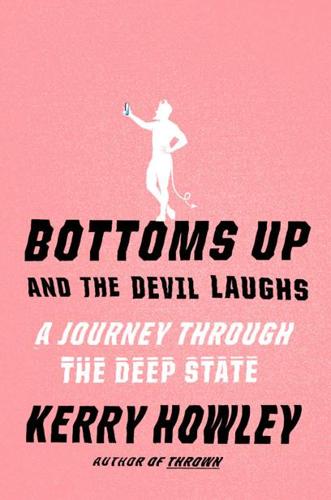
Bottoms Up and the Devil Laughs
by
Kerry Howley
Published 21 Mar 2023
Sundays, Mondays, and Thursdays were her favorite days, because those days she lifted the heaviest weights at a bodybuilding gym, and did the best job of not thinking about the ongoing starvation in Yemen or the destruction of Aleppo, and the fact that there had been a city, and then there wasn’t a city, and it was as if no one around her noticed at all. It wasn’t that she didn’t know she was coping with anxiety by overworking her body. She knew precisely what she suffered and what held it at bay. Months passed. She downloaded the Tor Browser, curious about WikiLeaks, about how it all worked. She opened it up at a Starbucks, was underwhelmed, closed the window. Reality did not have a college degree, but she was one of 1.4 million Americans with top secret clearance, which is to say that she had something to sell. Contractors are called body shops, and the bodies they want are security-cleared, readily found on sites like clearedconnections.com, which Reality frequented.
…
Brittany pressed; wasn’t there anything they could do to save him? The vet said both of the kitten’s eyes could be removed. Brittany told him to do it. Now she had a spirited blind cat she frequently referred to as her “firstborn son.” Justin brought Reality water. He asked what else they would find. Reality told them about her Tor Browser. About a time when she’d opened WikiLeaks, just to see what was there. She told them about the time when she had stuck a thumb drive into a secret computer at Fort Meade, to see how it was that her colleagues were loading pictures onto the “high side,” which is what one calls the closed network of computers at the NSA.
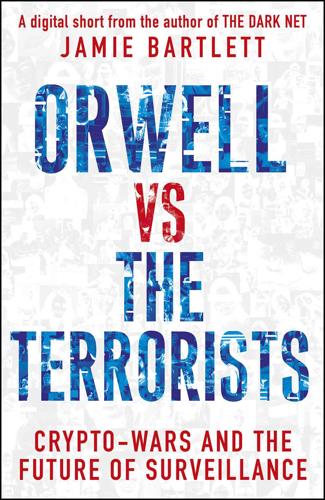
Orwell Versus the Terrorists: A Digital Short
by
Jamie Bartlett
Published 12 Feb 2015
Syrian democrats really do create secret and untraceable chat rooms to coordinate activity. Russian dissidents really do use internet browsers like Tor to circumnavigate state censorship of the net. Homosexuals in the Middle East really do use encryption to avoid a knock at the door from brutal enforcers of state morality. Anonymising tools like the Tor browser has had a hugely beneficial effect on free expression around the world. In 2011 the Tor Project – the group that keeps network system going – was awarded the Free Software Foundation award in the ‘Projects of Social Benefit’ category, because it has allowed millions of people to access the net while retaining control over their privacy.

Silk Road
by
Eileen Ormsby
Published 1 Nov 2014
The owner of Silk Road had magic mushrooms to sell so on 28 January 2011, a new forum member calling themselves ‘altoid’ registered on the Shroomery forums and wrote: I came across this website called Silk Road. It’s a Tor hidden service that claims to allow you to buy and sell anything online anonymously. I’m thinking of buying off it, but wanted to see if anyone here had heard of it and could recommend it. I found it through silkroad420.wordpress.com, which, if you have a tor browser, directs you to the real site at http://tydgccykixpbu6uz.onion. Let me know what you think . . . The gobbledygook site address, ending in .onion, was an indication that the site was one of those anonymously hosted by Tor. Sites hosted by Tor and other anonymity providers are colloquially known as the ‘dark web’.
…
This had some effect on slowing down the spammer, but it still managed to spam its way out of the Newbies Forum several times. A more successful ongoing scam involved someone changing the URL for Silk Road in the Wikipedia entry. It looked enough like the real site address to fool many people. Entering that URL into the Tor browser brought the user to a login page that looked just like Silk Road’s except that it requested the user’s PIN (which the legitimate site did not require) as well as their password. The PIN was only required when a user wanted to withdraw bitcoin from the site rather than use it to make a purchase.
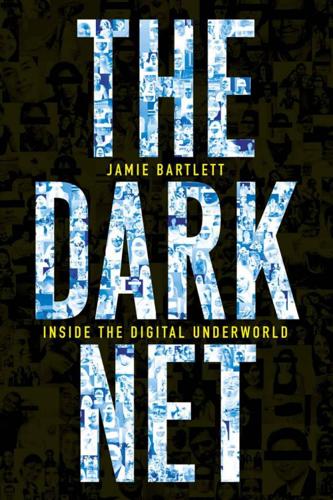
The Dark Net
by
Jamie Bartlett
Published 20 Aug 2014
According to the United Nations, child pornography (which some specialists prefer to call child abuse images) refers to ‘any representation, by whatever means, of a child engaged in real or simulated explicit sexual activities or any representation of the sexual parts of a child for primarily sexual purposes’. According to UK law, these images are classified under five levels of obscenity. Once I’d opened my Tor browser, it took me two mouse clicks to arrive at the page advertising the link. If I had clicked again, I would have committed an extremely serious crime. I can’t think of another instance where doing something so bad is so easy. We can now share files and information more simply, quickly and inexpensively than ever before.
…
Each was listed with a short description and contact details. A link to customer service complaints was prominently displayed, as was your shopping ‘cart’, and how much money you had in your account. Behind the slick facade was a sophisticated security system. The site was accessible only via a Tor browser, products could be bought only with Bitcoin, and visitors were advised to sign up with digital pseudonyms. Any correspondence between buyers and sellers took place using PGP encryption, and once read, messages were automatically deleted. In June 2011, a secure forum was set up in order to enable better communication between users of the site.
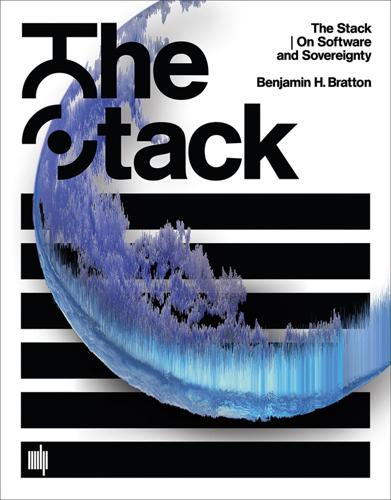
The Stack: On Software and Sovereignty
by
Benjamin H. Bratton
Published 19 Feb 2016
See Dave Evans, “The Internet of Things: How the Next Evolution of the Internet Is Changing Everything,” April 2011, https://www.cisco.com/web/about/ac79/docs/innov/IoT_IBSG_0411FINAL.pdf. To say nothing of the more or less charted waters of the Dark Net, accessible only through tools like the Tor browser. 19. But as Jameson notes, it is the irregularity of opposing forces that breaks down the order of the nomos: “With the religious wars, but perhaps also the English dominance of the sea—now leads to the Westphalian system of nation-states, in which, for the first time, the new nomos of state equality and friend-foe emerges.
…
So when target A is within a certain number of meters of target B according to their mobile intercept records, and target A receives an email mentioning something—a keyword—then an action is triggered.” For them the User-versus-Cloud arms race is tilted by the widespread use of cryptographic systems (including perhaps the Cryptophone, http://www.cryptophone.de/en/products/mobile/). One lesson from the Snowden affair was that the cryptographic and anonymizing tools (like Tor browser) may increase the likelihood that the User will be a tracked target of surveillance. See Dan Goodin, “Use of Tor and E-mail Crypto Could Increase Chances that NSA Keeps Your Data,” http://arstechnica.com/tech-policy/2013/06/use-of-tor-and-e-mail-crypto-could-increase-chances-that-nsa-keeps-your-data/.
…
See also terrorism in airports, 156 to atmospheric universalism, 136 economic, avoiding, 359 Massumi on, 101 state implied, 347 3FN, 400n42 thresholds, interfaces as, 228 Thrun, Sebastian, 281 tick, life world of, 393n50 Timberlake, James, 322 Time Machine, The (Wells), 189 Tomagotchi, 277 tomorrow, corporate funded use of, 432n71 topological imaginary, 162 Tor browser, 405n16 Tor User, 110 totalitarian future-present, 320–327 totalitarianism, 214, 250, 455n75 totality, 214 totality machines, 229 total war, 30, 34, 324 Toya, 353 traceability, 206 Transborder Immigrant Tool (TBIT), 173–176 transformation of the world, 339, 354 Transformers, The, 280 transhumanism, 253 transistor radio, 243–244, 429n62 transportation-as-platform, 139 transportation systems, 46, 282.
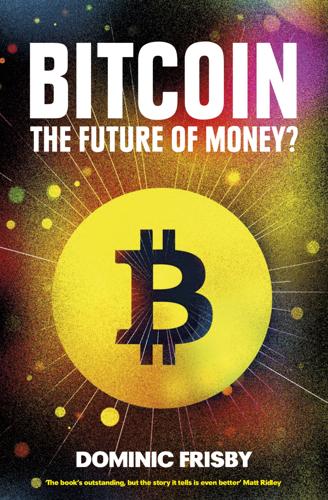
Bitcoin: The Future of Money?
by
Dominic Frisby
Published 1 Nov 2014
On January 27th 2011 he wrote on a magic mushroom forum – Shroomery.org: I came across this website called Silk Road. It’s a Tor hidden service that claims to allow you to buy and sell anything online anonymously. I’m thinking of buying off it, but wanted to see if anyone here had heard of it and could recommend it. I found it through silkroad420.wordpress.com, which, if you have a tor browser, directs you to the real site at LINK REMOVED Let me know what you think… 61 Two days later, Altoid found a thread at BitcoinTalk, discussing the logistics of trading drugs using Bitcoin. The thread had been dead for over a month, but he revived it: What an awesome thread! You guys have a ton of great ideas.
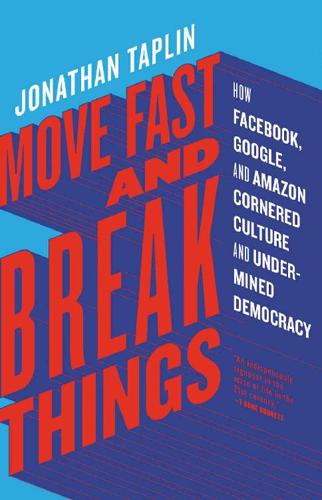
Move Fast and Break Things: How Facebook, Google, and Amazon Cornered Culture and Undermined Democracy
by
Jonathan Taplin
Published 17 Apr 2017
He built Silk Road in two months and went live in January of 2011 with his own home-cultivated psilocybin mushrooms as a starter product. Within months he had sellers of heroin, cocaine, and methamphetamine as well as prescription opioids doing business on the site. The Silk Road took a cut of every transaction, following the same monopsony model that had been so successful for Amazon. To access Silk Road, one had to use the Tor browser, another of the questionable innovations of the digital age. Tor stands for “the onion router,” which moves Internet traffic through a volunteer network consisting of thousands of relays to conceal a user’s location. Although Tor may have some legitimate uses—especially for political dissidents trying to avoid surveillance—its main use is as a means to reach the Dark Web, a cesspool of crime, child pornography, and sex trafficking that exists like a parallel universe apart from the Web most of us use.
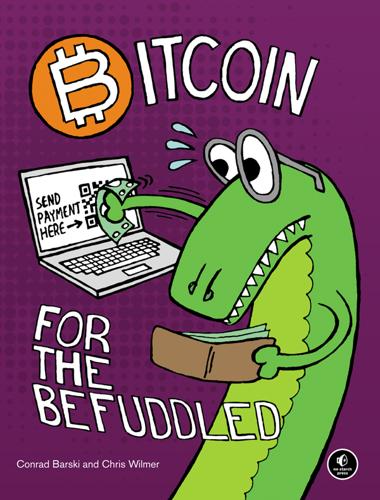
Bitcoin for the Befuddled
by
Conrad Barski
Published 13 Nov 2014
In general, maintaining complete privacy while doing online transactions is very difficult, with or without Bitcoin. Although the use of Bitcoin helps protect privacy when compared to using a credit card, it is not a complete solution. Other tools and precautions might need to be used as well (for example, using the online privacy-protecting TOR browser). 4. Although every private key is associated with a single Bitcoin address, the reverse is not always true. A Bitcoin address can require multiple private keys to unlock the bitcoins at that address (in this case, the Bitcoin address will begin with the number 3 instead of the usual 1). However, this advanced feature isn’t used for most common transactions. 5.
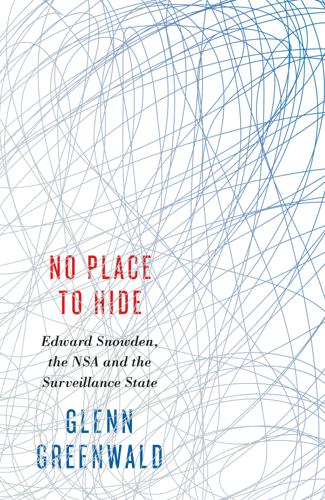
No Place to Hide: Edward Snowden, the NSA, and the U.S. Surveillance State
by
Glenn Greenwald
Published 12 May 2014
Marked “NOFORN,” the language of the order was as clear as it was absolute: This bulk telephone collection program was one of the most significant discoveries in an archive suffused with all types of covert surveillance programs—from the large-scale PRISM (involving collection of data directly from the servers of the world’s biggest Internet companies) and PROJECT BULLRUN, a joint effort between the NSA and its British counterpart, the Government Communications Headquarters (GCHQ), to defeat the most common forms of encryption used to safeguard online transactions, to smaller-scale enterprises with names that reflect the contemptuous and boastful spirit of supremacy behind them: EGOTISTICAL GIRAFFE, which targets the Tor browser that is meant to enable anonymity in online browsing; MUSCULAR, a means to invade the private networks of Google and Yahoo!; and OLYMPIA, Canada’s program to surveil the Brazilian Ministry of Mines and Energy. Some of the surveillance was ostensibly devoted to terrorism suspects. But great quantities of the programs manifestly had nothing to do with national security.
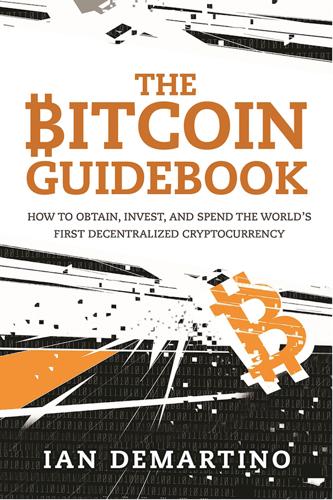
The Bitcoin Guidebook: How to Obtain, Invest, and Spend the World's First Decentralized Cryptocurrency
by
Ian Demartino
Published 2 Feb 2016
Tor then receives the requested information from the Internet, encrypts it, and sends it to an internal node, which then passes it to another internal node until it reaches another exit node, which decrypts the information and gives it back to the user. This way, if the entry node becomes compromised, it will “know” who is requesting information but not what they requested. The exit node can figure out what everyone requested but not who it belongs to. A Bitcoin address created and accessed by a computer using the Tor browser is virtually untraceable from the outside. If your computer is compromised by malware or viruses, no amount of precautions will prevent tracking. Popular operating systems, Windows in particular, are susceptible to snooping and attacks. Linux operating systems are generally more secure, but nothing is 100 percent.
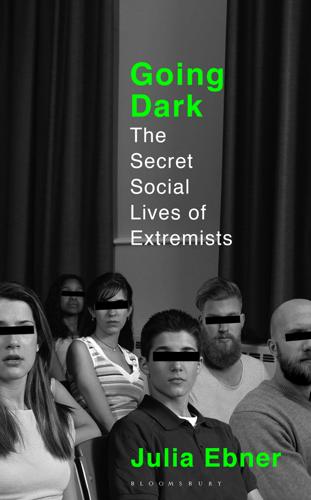
Going Dark: The Secret Social Lives of Extremists
by
Julia Ebner
Published 20 Feb 2020
‘And please tell to your good friend (IS supporter bro/sis) to delete their profile pic in their account to avoid that any intelligence official is monitoring us.’ What a funny thing to tell a counter-terrorism researcher. To escape detection new members are advised to use identity-obfuscation methods such as virtual private networks (VPNs), Tor browsers and fake phone numbers on Facebook and Twitter.14 One of the biggest challenges for the security services is to monitor all the new channels ISIS cells create to indoctrinate and initiate new recruits. Online chat groups exist in multiple languages and use protected notes on content-sharing webpages such as JustPaste.it.
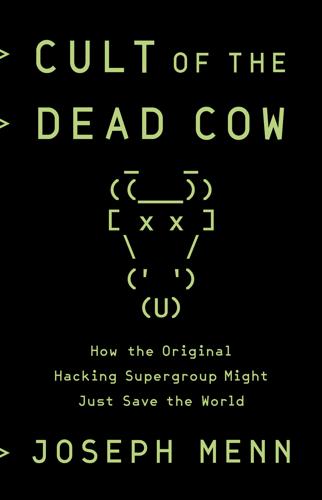
Cult of the Dead Cow: How the Original Hacking Supergroup Might Just Save the World
by
Joseph Menn
Published 3 Jun 2019
Then he wrote to Sumners: “This is worse than I thought. I need admin access to the NSF group, and the racial stuff has to go. Bottom line, the stuff isn’t strategic and it’s causing problems for me. Thanks!” After a protracted struggle among the admins, the old cDc guard wrested control back. Sumners, Xerobank Tor browser creator Steve Topletz, and a few others in NSF, including self-described black hat and white nationalist Timothy “Matlock” Noonan, had their own publication and social group, DSSK Corp. Speaking as Matlock, Noonan declined to discuss most of his activities with me. He did say he had grown up on cDc but that the crew had become stale and irrelevant and didn’t do much hacking.
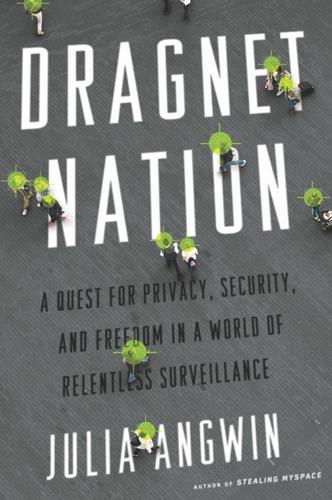
Dragnet Nation: A Quest for Privacy, Security, and Freedom in a World of Relentless Surveillance
by
Julia Angwin
Published 25 Feb 2014
I sat down, ordered a cappuccino, opened up my laptop, and launched Tor, the anonymizing software that masks the Internet address of your computer by routing traffic around the world. This time, I appeared to be in Germany. Browsing on Tor is slow. As a test, I typed New York University’s Web address, www.nyu.edu, into the Tor browser and into the regular Firefox Web browser and clocked each of them. It took twenty seconds to launch in Tor and three seconds to launch in Firefox. At least I had plenty of time to sip my coffee as I browsed on Tor. I started by signing up for a free e-mail account for Ida from Microsoft’s Outlook.com.

American Kingpin: The Epic Hunt for the Criminal Mastermind Behind the Silk Road
by
Nick Bilton
Published 15 Mar 2017
He had no leads and no idea how to tackle a Web site that was a den of anonymity. Thankfully for Jared, that was about to change. For weeks he had been working on his plan of attack. He knew he couldn’t find the leader of the site—or leaders, perhaps, he acknowledged—as they were securely cloaked by the Tor browser online. But he also knew how any crime network worked, and that if you start at the bottom, you will eventually make your way to the top. The bottom for Jared meant buying drugs. Lots of drugs. He hadn’t anticipated how difficult it would be to buy narcotics online. Not because it was hard to procure heroin or crack from the Silk Road (it was actually shockingly easy) but rather because no one in the Department of Homeland Security had ever before embarked upon an online drug-shopping spree.
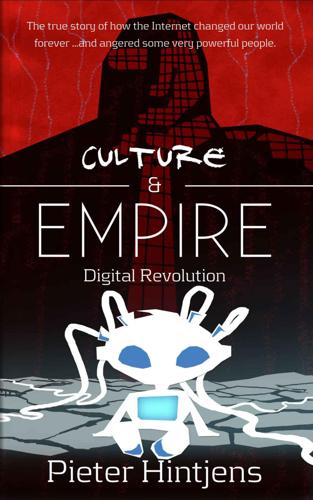
Culture & Empire: Digital Revolution
by
Pieter Hintjens
Published 11 Mar 2013
It gives journalists, activists, and whistle blowers a way to publish without being tracked and punished. Privacy isn't a luxury when simply writing about a sensitive topic like religion can result in corporal punishment and imprisonment. Tor creates a network of "onion sites," also called the "Deep Web," accessible only via a Tor browser. The name "onion comes from the way the security works, layer by layer. The Deep websites are invisible to normal Web users, you cannot open them in a browser. The most famous such site was the Silk Road marketplace, mainly used for selling drugs by some accounts, guns and worse by other accounts.
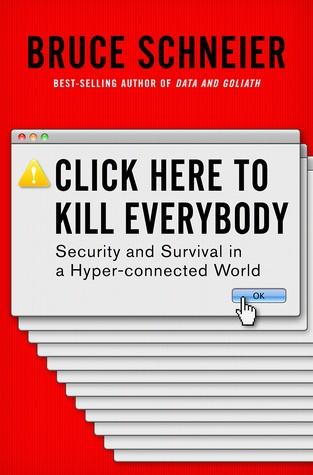
Click Here to Kill Everybody: Security and Survival in a Hyper-Connected World
by
Bruce Schneier
Published 3 Sep 2018
Dan Patterson (9 Jan 2017), “Gallery: The top zero day Dark Web markets,” TechRepublic, https://www.techrepublic.com/pictures/gallery-the-top-zero-day-dark-web-markets. 162and to governments: Andy Greenberg (21 Mar 2012), “Meet the hackers who sell spies the tools to crack your PC (and get paid six-figure fees),” Forbes, http://www.forbes.com/sites/andygreenberg/2012/03/21/meet-the-hackers-who-sell-spies-the-tools-to-crack-your-pc-and-get-paid-six-figure-fees. 162Companies like Azimuth sell: Joseph Cox and Lorenzo Franceschi-Bicchierai (7 Feb 2018), “How a tiny startup became the most important hacking shop you’ve never heard of,” Vice Motherboard, https://motherboard.vice.com/en_us/article/8xdayg/iphone-zero-days-inside-azimuth-security. 162And while vendors offer bounties: Adam Segal (19 Sep 2016), “Using incentives to shape the zero-day market,” Council on Foreign Relations, https://www.cfr.org/report/using-incentives-shape-zero-day-market. 162the not-for-profit Tor Project: Tor Project (last updated 20 Sep 2017), “Policy [re Tor bug bounties],” Hacker One, Inc., https://hackerone.com/torproject. 162the cyberweapons manufacturer Zerodium: Zerodium (13 Sep 2017; expired 1 Dec 2017), “Tor browser zero-day exploits bounty (expired),” https://zerodium.com/tor.html. 163“Every offensive weapon is”: Jack Goldsmith (12 Apr 2014), “Cyber paradox: Every offensive weapon is a (potential) chink in our defense—and vice versa,” Lawfare, http://www.lawfareblog.com/2014/04/cyber-paradox-every-offensive-weapon-is-a-potential-chink-in-our-defense-and-vice-versa. 163Many people have weighed in: Joel Brenner (14 Apr 2014), “The policy tension on zero-days will not go away,” Lawfare, http://www.lawfareblog.com/2014/04/the-policy-tension-on-zero-days-will-not-go-away. 163Activist and author Cory Doctorow: Cory Doctorow (11 Mar 2014), “If GCHQ wants to improve national security it must fix our technology,” Guardian, http://www.theguardian.com/technology/2014/mar/11/gchq-national-security-technology. 163I have said similar things: Bruce Schneier (20 Feb 2014), “It’s time to break up the NSA,” CNN, http://edition.cnn.com/2014/02/20/opinion/schneier-nsa-too-big/index.html. 163Computer security expert Dan Geer: Dan Geer (3 Apr 2013), “Three policies,” http://geer.tinho.net/three.policies.2013Apr03Wed.PDF. 163Both Microsoft’s Brad Smith: Brad Smith (14 May 2017), “The need for urgent collective action to keep people safe online: Lessons from last week’s cyberattack,” Microsoft on the Issues, https://blogs.microsoft.com/on-the-issues/2017/05/14/need-urgent-collective-action-keep-people-safe-online-lessons-last-weeks-cyberattack. 163and Mozilla: Heather West (7 Mar 2017), “Mozilla statement on CIA/WikiLeaks,” Open Policy & Advocacy, https://blog.mozilla.org/netpolicy/2017/03/07/mozilla-statement-on-cia-wikileaks.
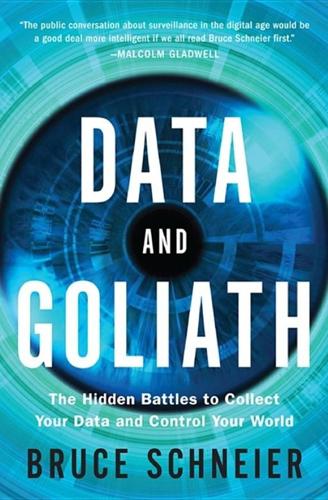
Data and Goliath: The Hidden Battles to Collect Your Data and Control Your World
by
Bruce Schneier
Published 2 Mar 2015
Edgar, attempted intimidation of King by, 98, 102–3 hop searches, 37–38 HTTPS Everywhere, 215, 216 Huawei, 74, 86, 182 Human Rights Watch, 96, 178 IBM, 104, 122 iCloud, 58 ICREACH, 67 identification, anonymity and, 131–33 identity theft, 116–19 iMacs, 58 imperfection, systemic, resilience and, 163–64 IMSI-catchers, 68, 165–66 independence, oversight and, 162–63, 169, 177–78 India, 76 individuals, data rights of, 192–93, 200–203, 211, 232 data storage by, 18–19 see also mass surveillance, individual defenses against inferences, from data mining, 34–35, 258, 259 and correlation of data sets, 40–42 error rates in, 34, 54, 136–37, 269 information fiduciaries, 204–5 information middlemen: Internet’s empowering of, 57–58 monopolistic nature of, 57 Information Technology and Innovation Foundation, 121–22 InfoUSA, 53 Initiate Systems, 41 Instagram, 58 intelligence community, US, 67 budget of, 64–65, 80 fear and, 228 international partnerships of, 76–77 private contractors in, 80, 228 revolving door in, 80 see also specific agencies Internal Revenue Service, US (IRS), 137, 159 International Association of Privacy Professionals, 124 International Principles on the Application of Human Rights to Communications Surveillance, 167, 168–69 International Telecommunications Union, 106, 187 Internet: anonymity on, 43–44, 131–33 benefits of, 8 commons as lacking on, 188–89 cyberattacks on, see cyberwarfare deliberate insecurity of, 7, 146–50, 182 early history of, 119 fee-based vs. ad-based business model of, 50, 56, 206 freedom of, 107, 188 government censorship and control of, 94–95, 106–7, 187–88, 237 identification and, 131–33 information middlemen and, see information middlemen international nature of, 6–7, 187–88, 209, 220–21 laws and, 220–21 as media source, 15 physical wiring of, 64 privacy and, 203–4, 230–31 traditional corporate middlemen eliminated by, 56–57 trust and, 181–82 Internet companies, transparency reports of, 207–8 Internet Movie Database, 43 Internet of Things, 15–17 Internet searches, NSA collection of data on, 22 Internet surveillance, 47–51 advertising and, see advertising, personalized cable companies and, 48–49 cookies and, 47–48, 49 global, 69–71 NSA and, 62, 64–65, 78, 122, 149–50, 188, 207 ubiquity of, 32 see also mass surveillance, corporate iPads, 58 iPhones, 31, 42, 58 Iran: government surveillance in, 71–72 Stuxnet cyberattack on, 75, 132, 146, 150 Iraq War, 65 IRC, 119 Israel: mass surveillance by, 182 Stuxnet cyberattack by, 75, 132, 146, 150 US intelligence data shared with, 77 Israeli assassination team, identification of, 43 ISS (Intelligence Support Systems) World, 81 iTunes store, 57 Jawbone, 16 Jay-Z, 48 Joint Terrorism Task Forces, 69 journalists, government surveillance and, 96 JPMorgan Chase, 116 judiciary, surveillance and, 168, 170, 179–80 justice, as core American value, 230 Justice Department, US, 184, 186 Kerry, John, 101 keyboard loggers, 25 key escrow, 120–21 keyword searches, 28, 261 Kindle, 28, 59 King, Martin Luther, Jr., 237 Hoover’s attempted intimidation of, 98, 102–3 Kinsey, Alfred, database of, 44 Klein, Mark, 250, 288 Kunstler, James, 206 Kurds, 76 Lanier, Jaron, 201 Lavabit, 83–84, 209 law enforcement, state and local: abuse of power by, 135, 160 IMSI-catchers used by, 68 location data and, 2, 243 militarization of, 184 predictive algorithms used by, 98–99, 100, 137, 159 racism in, 184 secrecy of, 100, 160 transparency and, 170 lawyers, government surveillance and, 96 legal system: as based on human judgment, 98–99 government surveillance and, 168, 169 secrecy and, 100 Lenddo, 111, 113 Level 3 Communications, 85 Levison, Ladar, 84 liberty: commons and, 189 as core American value, 230 social norms and, 227 liberty, government surveillance and, 6, 91–107, 184 abuses of power in, 101–5, 160, 234–35 anonymity and, 133 censorship and, 94–95, 106–7, 187–88 and changing definition of “wrong,” 92–93, 97–98 discrimination and, 103–4 fear and, 4, 7, 95–97, 135, 156–57, 171, 182–83, 222, 226, 227–30 Internet freedom and, 106–7, 188 political discourse and, 97–99 secrecy and, 99–101 security and, 135, 157–59, 361–62 ubiquitous surveillance and, 92, 97 Library of Congress, 199 Libya, 81 license plate scanners, 26–27, 40 storage of data from, 36 lifelogging, 16 Lincoln, Abraham, 229 Little Brother (Doctorow), 217 location data, 1–3, 28, 39, 62, 243, 339 advertising and, 39–40 de-anonymizing with, 44 embedded in digital photos, 14–15, 42–43 selling of, 2 Locke, John, 210 Los Angeles Police Department, 160 LOVEINT, 102, 177 Lower Merion School District, 104 LulzSec hacker movement, 42 MAC addresses, 29 MacKinnon, Rachel, 210, 212 Madrid Privacy Declaration (2009), 211–12 Magna Carta, information age version of, 210–12 manipulation, surveillance-based, 113–16 Manning, Chelsea, 101 marijuana use, 97 MARINA, 36 Mask, The, 72 Massachusetts Group Insurance Commission, 263 mass surveillance: algorithmic-based, 129–31, 159, 196 as automated process, 5, 129–31 dangers of, 4–5, 6 economic harms from, 6–7, 121–22, 151 false positives in, 137, 138, 140, 323–24 fatalism and, 224–25 lack of consent in, 5, 20, 51 metadata in, 20–23 minimum necessary, 158–59, 176, 211 moratorium urged on new technologies of, 211 noticing, 223 security harmed by, 7, 146–50 social norms and, 226–38 society’s bargains with, 4, 8–9, 47, 49–51, 58–59, 60–61, 158, 226, 235–38 speaking out about, 223–24 targeted surveillance vs., 5, 26, 139–40, 174, 179–80, 184, 186 transparency and, 159–61, 169, 170–71, 176 ubiquity of, 5, 26–28, 32, 40, 53, 92, 97, 224, 233 urgency of fight against, 233–35 see also data collection; data mining mass surveillance, corporate, 46–61, 86–87 advertising and, see advertising, personalized business competitiveness and, 119–24 cost of, to US businesses, 123–24 customers as products in, 53, 58 customer service and, 47 data brokers and, see data brokers discrimination and, 109–13 error rates in, 54 feudal nature of, 58–59, 61, 210–12 free services and convenience exchanged for, 4, 49–51, 58–59, 60–61, 226, 235–36 growth of, 23–24 harms from, 108–18 lobbying and, 233 manipulation and, 113–16 manipulation through, 6 market research and, 47 privacy breaches and, 116–18, 142, 192, 193–95 secrecy and, 194 see also mass surveillance, public-private partnership in mass surveillance, corporate, solutions for, 7, 190–212 accountability and liability in, 192, 193–95, 196–97, 202 data quality assurance and, 181, 192, 194, 202 government regulation in, 192, 196–99, 210 individual participation and, 192 and limits on data collection, 191, 192, 199–200, 202, 206 and limits on data use, 191, 192, 194, 195–97, 206 lobbying and, 209, 222–23 and resistance to government surveillance, 207–10 and respect for data context, 202 rights of individuals and, 192, 200–203, 211 salience and, 203–4 security safeguards and, 192, 193–95, 202, 211 specification of purpose and, 192 transparency and, 192, 194, 196, 202, 204, 207–8 mass surveillance, government, 5–6, 62–77 chilling effects of, 95–97 in China, 70, 86, 140, 209 cloud computing and, 122 corporate nondisclosure agreements and, 100 corporate resistance to, 207–10 cost of, 91 cost of, to US businesses, 121–23 democracy and, 6, 95, 97–99 discrimination and, 4, 6, 93 encryption technology and, 119–23 fear-based justification for, 4, 7, 95–97, 135, 156–57, 171, 182–83, 222, 226, 227–30, 246 fishing expeditions in, 92, 93 in France, 79 fusion centers in, 69, 104 gag orders in, 100, 122 geopolitical conflicts and, 219–20 global, 69–71 growth of, 24–25 hacking in, 71–74 as harmful to US global interests, 151 as ineffective counterterrorism tool, 137–40, 228 international partnerships in, 76–77, 169 lack of trust in US companies resulting from, 122–23, 181–83 liberty and, see liberty, government surveillance and location data used in intimidation and control by, 2 mission creep and, 104–5 oversight and accountability in, 161–63, 169 in Russia, 70, 187, 188, 237 mass surveillance, government ( continued) secrecy of, 99–101, 121, 122 subversion of commercial systems in, 82–87 in UK, 69, 79 US hypocrisy about, 106 see also mass surveillance, public-private partnership in; specific agencies mass surveillance, government, solutions for, 7, 168–89 adequacy and, 168 and breakup of NSA, 186–87 due process and, 168, 184 illegitimate access and, 169, 177 integrity of systems and, 169, 181–82 international cooperation and, 169, 180, 184 judicial authority and, 168, 179–80 legality and, 168, 169 legitimacy and, 168 limitation of military role in, 185–86 lobbying and, 222 “Necessary and Proportionate” principles of, 167, 168–69 necessity and, 168 oversight and, 169, 172–78 proportionality and, 168 separation of espionage from surveillance in, 183–84 targeted surveillance and, 179–80, 184, 186 transparency and, 169, 170–71, 176 trust and, 181–83 user notification and, 168 whistleblowers and, 169, 178–79 mass surveillance, individual defenses against, 7, 213–25 avoidance in, 214 blocking technologies in, 214–17 breaking surveillance technologies, 218–19 distortion in, 217–18 fatalism as enemy of, 224–25 political action and, 213, 222–24, 237–38 mass surveillance, public-private partnership in, 6, 25, 78–87, 207 government subversion of commercial systems in, 82–87 nondisclosure agreements and, 100 privately-made technology in, 81–82, 100 sale of government data in, 79–80 and value neutrality of technology, 82 material witness laws, 92 McCarthyism, 92–93, 229, 234 McConnell, Mike, 80 McNealy, Scott, 4 media: fear and, 229 pre-Internet, 15 medical devices, Internet-enabled, 16 medical research, collection of data and, 8 Medtronic, 200 memory, fallibility of, 128, 320 Merkel, Angela, 151, 160–61, 183, 184 metadata, 216 from cell phones, see cell phone metadata data vs., 17, 23, 35, 251 from Internet searches, 22–23 in mass surveillance, 20–23, 67 from tweets, 23 Michigan, 2, 39 Microsoft, 49, 59–60, 84, 148, 221, 272, 359 customer loyalty to, 58 government demands for data from, 208, 359 increased encryption by, 208 transparency reports of, 207 Mijangos, Luis, 117 military, US: ban on domestic security role of, 185–86 Chinese cyberattacks against, 73 “Don’t Ask Don’t Tell” policy of, 197 drone strikes by, 94 see also Army, US; Cyber Command, US; Defense Department, US MINARET, 175 Minority Report (film), 98 mission creep, 104–5, 163 Mitnick, Kevin, 116 Moglen, Eben, 95, 318 money transfer laws, 35–36 Monsegur, Hector, 42 Mori, Masahiro, 55 MS Office, 60 Multiprogram Research Facility, 144 Muslim Americans, government surveillance of, 103–4 MYSTIC, 36 Napolitano, Janet, 163 Narent, 182 narrative fallacy, 136 Nash equilibrium, 237 Natanz nuclear facility, Iran, 75 National Academies, 344 National Counterterrorism Center, 68 National Health Service, UK, 79 National Institute of Standards and Technology (NIST), proposed takeover of cryptography and computer security programs by, 186–87 National Reconnaissance Office (NRO), 67 National Security Agency, US (NSA): backdoors inserted into software and hardware by, 147–48 Bermuda phone conversations recorded by, 23 “Black Budget” of, 65 cell phone metadata collected by, 20–21, 36, 37, 62, 138, 339 “collect” as defined by, 129, 320 “collect it all” mentality of, 64–65, 138 COMSEC (communications security) mission of, 164–65, 346 congressional oversight of, 172–76 “connect-the-dots” metaphor of, 136, 139 cost to US businesses of surveillance by, 121–22, 151 counterterrorism mission of, 63, 65–66, 184, 222 counterterrorism successes claimed by, 325 cryptanalysis by, 144 cyberattacks by, 149–50 drug smugglers surveilled by, 105 economic espionage by, 73 encryption programs and, 85–86, 120–21 encryption standards deliberately undermined by, 148–49 expanding role of, 24, 165 FISA Amendments Act and, 174–75, 273 foreign eavesdropping (SIGINT) by, 62–63, 76, 77, 122–23, 164–65, 186, 220 Germany surveilled by, 76, 77, 122–23, 151, 160–61, 183, 184 Gmail user data collected by, 62 historical data stored by, 36 history of, 62–63 inadequate internal auditing of, 303 innocent people surveilled by, 66–67 insecure Internet deliberately fostered by, 146–50, 182 international partnerships of, 76–77 Internet surveillance by, 22, 62, 64–65, 78, 86–87, 122–23, 149–50, 188, 207 keyword searches by, 38, 261 legal authority for, 65–66 location data used by, 3, 339 Multiprogram Research Facility of, 144 Muslim Americans surveilled by, 103 parallel construction and, 105, 305 Presidential Policy Directives of, 99–100 PRISM program of, 78, 84–85, 121, 208 proposed breakup of, 186–87 QUANTUM program of, 149–50, 329–30 relationship mapping by, 37–38 remote activation of cell phones by, 30 secrecy of, 99–100, 121, 122 SIGINT Enabling Project of, 147–49 Snowden leaks and, see Snowden, Edward SOMALGET program of, 65 Syria’s Internet infrastructure penetrated by, 74, 150 Tailored Access Operations (TAO) group of, 72, 85, 144, 149, 187 UN communications surveilled by, 102, 183 National Security Agency, US (NSA) ( continued) Unitarian Church lawsuit against, 91 US citizens surveilled by, 64, 66, 175 US global standing undermined by, 151 Utah Data Center of, 18, 36 vulnerabilities stockpiled by, 146–47 National Security Letters (NSLs), 67, 84, 100, 207–8 Naval Criminal Investigative Service, 69 Naval Research Laboratory, US, 158 Nest, 15–16 Netcom, 116 Netflix, 43 Netsweeper, 82 New Digital Age, The (Schmidt and Cohen), 4 newsgroups, 119 New York City Police Department, 103–4 New York State, license plate scanning data stored by, 36 New York Times, Chinese cyberattack on, 73, 132, 142 New Zealand, in international intelligence partnerships, 76 Nigeria, 81 9/11 Commission Report, 139, 176 Nineteen Eighty-Four (Orwell), 59, 225 NinthDecimal, 39–40 NIST, see National Institute of Standards and Technology Nixon, Richard, 230 NOBUS (nobody but us) vulnerabilities, 147, 181 Nokia, 81 nondisclosure agreements, 100 North, Oliver, 127–28 Norway, 2011 massacre in, 229–30 NSA, see National Security Agency, US Oak Ridge, Tenn., 144 Obama, Barack, 33, 175 NSA review group appointed by, 176–77, 181 Obama administration: Internet freedom and, 107 NSA and, 122 whistleblowers prosecuted by, 100–101, 179 obfuscation, 217–18 Occupy movement, 104 Ochoa, Higinio (w0rmer), 42–43 OECD Privacy Framework, 191–92, 197 Office of Foreign Assets Control, 36 Office of Personnel Management, US, 73 Off the Record, 83, 215 Olympics (2014), 70, 77 Onionshare, 216 openness, see transparency opt-in vs. opt-out consent, 198 Orange, 79 Orbitz, 111 Organized Crime Drug Enforcement Task Forces, 69 Orwell, George, 59, 225 oversight, of corporate surveillance, see mass surveillance, corporate, solutions for, government regulation in oversight, of government surveillance, 161–63, 169, 172–78 Oyster cards, 40, 262 packet injection, 149–50 PageRank algorithm, 196 Palmer Raids, 234 Panetta, Leon, 133 panopticon, 32, 97, 227 panoptic sort, 111 parallel construction, 105, 305 Pariser, Eli, 114–15 Parker, Theodore, 365 PATRIOT Act, see USA PATRIOT Act pen registers, 27 Peoria, Ill., 101 personalized advertising, see advertising, personalized personally identifying information (PII), 45 Petraeus, David, 42 Petrobras, 73 Pew Research Center, 96 PGP encryption, 215, 216 photographs, digital, data embedded in, 14–15, 42–43 Pirate Party, Iceland, 333 Placecast, 39 police, see law enforcement, state and local police states, as risk-averse, 229 political action, 7, 213, 222–24, 237–38 political campaigns: data mining and, 33, 54 personalized marketing in, 54, 115–16, 233 political discourse, government surveillance and, 97–99 politics, politicians: and fear of blame, 222, 228 technology undermined by, 213 Posse Comitatus Act (1878), 186 Postal Service, US, Isolation Control and Tracking program of, 29 Presidential Policy Directives, 99–100 prices, discrimination in, 109–10 PRISM, 78, 84–85, 121, 208 privacy, 125–33 algorithmic surveillance and, 129–31, 204 as basic human need, 7, 126–27 breaches of, 116–18, 192, 193–95 as fundamental right, 67, 92, 126, 201, 232, 238, 318, 333, 363–64 of healthcare data, 193 Internet and, 203–4, 230–31 loss of, 4, 7, 50–51, 96, 126 and loss of ephemerality, 127–29 “nothing to hide” fallacy and, 125 and proposed Consumer Privacy Bill of Rights, 201, 202 security and, 155–57 social norms and, 227, 230–33 third-party doctrine and, 67–68, 180 as trumped by fear, 228 undervaluing of, 7–8, 50, 156, 194, 203–4 Privacy and Civil Liberties Oversight Board, 176, 177 privacy enhancing technologies (PETs), 215–16, 217 Privacy Impact Notices, 198, 211 probable cause, 184 Protect America Act (2007), 275 public-private partnership, see mass surveillance, public-private partnership in Qualcomm, 122 QUANTUM packet injection program, 149–50, 329–30 radar, high-frequency, 30 “ratters,” 117 Reagan, Ronald, 230 redlining, 109 Red October, 72 Regulation of Investigatory Powers Act (UK; 2000), 175 relationships, mapping of, 37–38 remote access Trojans (RATs), 117 resilience, systemic imperfections and, 163–64 retailers, data collected by, 14, 24, 51–52 revenge porn, 231 RFID chips, 29, 211 Richelieu, Cardinal, 92 rights, of consumers, see consumer rights risk, police states as averse to, 229 risk management, 141–42 Robbins, Blake, 104 robotics, 54–55 Rogers, Michael, 75 Roosevelt, Franklin D., 229, 230 Rousseff, Dilma, 151 RSA Security, 73, 84 rule of law, 210, 212 Russia: cyberwarfare and, 180 mandatory registration of bloggers in, 95 mass surveillance by, 70, 187, 188, 237 salience, 203–4 San Diego Police Department, 160 Sarkozy, Nicolas, 96 Saudi Arabia, 76, 187, 209 Saudi Aramco, 75 Schmidt, Eric, 4, 22, 57, 86, 125 schools, surveillance abuse in, 104 Schrems, Max, 19, 200 search engines, business model of, 113–14, 206 secrecy: corporate surveillance and, 194 of government surveillance, 99–101, 121, 122, 170–71 legitimate, transparency vs., 332–33 security, 135–51 airplane, 93, 158 attack vs. defense in, 140–43 balance between civil liberties and, 135 complexity as enemy of, 141 cost of, 142 data mining as unsuitable tool for, 136–40 and deliberate insecurity of Internet, 146–50 encryption and, see encryption fear and, 4, 7, 95–97, 135, 156–57, 171, 182–83, 222, 226, 227–30 hindsight and, 136 mass surveillance as harmful to, 7, 146–50 and misguided focus on spectacular events, 135 narrative fallacy in, 136 privacy and, 155–57 random vs. targeted attacks and, 142–43 risk management and, 141–42 social norms and, 227 surveillance and, 157–59 vulnerabilities and, 145–46 security cameras, see surveillance technology self-censorship, 95 Senate, US, Intelligence Committee of, 102, 172, 339 Sensenbrenner, Jim, 174 Sense Networks, 2, 40 September 11, 2001, terrorist attacks, 63, 65, 136, 156, 169, 184, 207, 227, 229 SHAMROCK, 175 Shirky, Clay, 228, 231 Shutterfly, 269 Siemens, 81 SIGINT (signals intelligence), see National Security Agency, US, foreign eavesdropping by SIGINT Enabling Project, 147–49 Silk Road, 105 Skype, 84, 148 SmartFilter, 82 smartphones: app-based surveillance on, 48 cameras on, 41 as computers, 14 GPS tracking in, 3, 14, 216–17 MAC addresses and Bluetooth IDs in, 29 Smith, Michael Lee, 67–68 Snowden, Edward, 177, 178, 217 e-mail of, 94 Espionage Act and, 101 EU Parliament testimony of, 76 NSA and GCHQ documents released by, 6, 20, 40–41, 62, 65, 66, 67, 72, 74, 78, 96, 99–100, 121, 129, 144, 149, 150, 160–61, 172, 175, 182, 207, 223, 234, 238 Sochi Olympics, 70, 77 Socialists, Socialism, 92–93 social networking: apps for, 51 customer scores and, 111 customer tracking and, 123 data collected in, 200–201 government surveillance of, 295–96 see also specific companies social norms: fear and, 227–30 liberty and, 227 mass surveillance and, 226–38 privacy and, 227, 230–33 security and, 227 software: security of, 141, 146 subscription vs. purchase models for, 60 Solove, Daniel, 93 SOMALGET, 65 Sophos, 82 Sotomayor, Sonia, 95, 342 South Korea, cyberattack on, 75 spy gadgets, 25–26 SSL encryption, 85–86 SSL (TLS) protocol, 215 Standard Chartered Bank, 35–36 Staples, 110 Stasi, 23 Steinhafel, Gregg, 142 strategic oversight, 162, 172–77 StingRay surveillance system, 100, 165 Stross, Charles, 128 Stuxnet, 75, 132, 146 collateral damage from, 150 Supreme Court, US, 26, 180, 361–62 third-party doctrine and, 68 surveillance: automatic, 31–32 benefits of, 8, 190 as business model, 50, 56, 113–14, 206 cell phones as devices for, 1–3, 14, 28, 39, 46–47, 62, 100, 216–17, 219, 339 constant, negative health effects of, 127 cost of, 23–26 espionage vs., 170, 183–84 government abuses of, 101–5 government-on-government, 63, 73, 74, 75, 76, 158 hidden, 28–30 legitimate needs for, 219–20 as loaded term, 4 mass, see mass surveillance oversight and accountability in, 161–63, 169, 172–78 overt, 28, 30 perception of, 7–8 personal computers as devices for, 3–4, 5 politics and, 213 pre-Internet, 64, 71 principles of, 155–66 targeted, see targeted surveillance transparency and, 159–61, 169, 170–71, 176 surveillance technology: cameras, 14, 17, 31–32 cost of, 25–26 shrinking size of, 29 Suspicious Activity Reports (SAR), 138 Sweeney, Latanya, 44, 263–64 SWIFT banking system, 73 Swire, Peter, 160 Syria, 81 NSA penetration of Internet infrastructure in, 74, 150 System for Operative Investigative Measures (SORM; Russia), 70 tactical oversight, 162, 177–79 Tailored Access Operations group (TAO), 72, 85, 144, 149, 187 Taleb, Nassim, 136 Target, 33, 34, 55 security breach of, 142, 193 targeted advertising, see advertising, personalized targeted surveillance: mass surveillance vs., 5, 26, 139–40, 174, 179–80, 184, 186 PATRIOT Act and, 174 tax fraud, data mining and, 137 technology: benefits of, 8, 190–91 political undermining of, 213 privacy enhancing (PETs), 215–16, 217 see also surveillance technology telephone companies: FBI demands for databases of, 27, 67 historical data stored by, 37, 67 NSA surveillance and, 122 transparency reports of, 207–8 see also cell phone metadata; specific companies Teletrack, 53 TEMPORA, 79 Terrorism Identities Datamart Environment, 68, 136 terrorists, terrorism: civil liberties vs., 135 government databases of, 68–69 as justification for mass surveillance, 4, 7, 170–71, 226, 246 mass surveillance as ineffective tool for detection of, 137–40, 228 and NSA’s expanded mission, 63, 65–66 terrorists, terrorism ( continued) overly broad definition of, 92 relative risk of, 332 Uighur, 219, 287 uniqueness of, 138 see also counterterrorism; security; September 11, 2001, terrorist attacks thermostats, smart, 15 third-party doctrine, 67–68, 180 TLS (SSL) protocol, 215 TOM-Skype, 70 Tor browser, 158, 216, 217 Torch Concepts, 79 trade secrets, algorithms as, 196 transparency: algorithmic surveillance and, 196 corporate surveillance and, 192, 194, 196, 202, 207–8 legitimate secrecy vs., 332–33 surveillance and, 159–61, 169, 170–71, 176 Transparent Society, The (Brin), 231 Transportation Security Administration, US (TSA), screening by, 136, 137, 159, 231, 321 Treasury, US, 36 Truman, Harry, 62, 230 trust, government surveillance and, 181–83 truth in lending laws, 196 Tsarnaev, Tamerlan, 69, 77, 139 Turkey, 76 Turla, 72 Twitter, 42, 58, 199, 208–9 metadata collected by, 23 Uber, 57 Uighur terrorists, 219, 287 Ukraine, 2, 39 Ulbricht, Ross (Dread Pirate Roberts), 105 “uncanny valley” phenomenon, 54–55 Underwear Bomber, 136, 139 UN High Commissioner on Human Rights, 96 Unit 8200, 77 United Kingdom: anti-discrimination laws in, 93 data retention law in, 222 GCHQ of, see Government Communications Headquarters in international intelligence partnerships, 76 Internet censorship in, 95 license plate scanners in, 27 mission creep in, 105 Regulation of Investigatory Powers Act (2000) of, 175 United Nations: digital privacy resolution of, 232, 363–64 NSA surveillance of, 102, 183 United States: data protection laws as absent from, 200 economic espionage by, 73 Germany’s relations with, 151, 234 intelligence budget of, 64–65, 80 NSA surveillance as undermining global stature of, 151 Stuxnet cyberattack by, 75, 132, 146, 150 Universal Declaration of Human Rights, 232 USA PATRIOT Act (2001), 105, 221, 227 Section 215 of, 65, 173–74, 208 Section 505 of, 67 US Cellular, 177 Usenet, 189 VASTech, 81 Verint, 2–3, 182 Verizon, 49, 67, 122 transparency reports of, 207–8 Veterans for Peace, 104 Vigilant Solutions, 26, 40 Vodafone, 79 voiceprints, 30 vulnerabilities, 145–46 fixing of, 180–81 NSA stockpiling of, 146–47 w0rmer (Higinio Ochoa), 42–43 Wall Street Journal, 110 Wanamaker, John, 53 “warrant canaries,” 208, 354 warrant process, 92, 165, 169, 177, 180, 183, 184, 342 Constitution and, 92, 179, 184 FBI and, 26, 67–68 NSA evasion of, 175, 177, 179 third-party doctrine and, 67–68, 180 Watson, Sara M., 55 Watts, Peter, 126–27 Waze, 27–28, 199 weapons of mass destruction, overly broad definition of, 92, 295 weblining, 109 WebMD, 29 whistleblowers: as essential to democracy, 178 legal protections for, 162, 169, 178–79, 342 prosecution of, 100–101, 178, 179, 222 Wickr, 124 Wi-Fi networks, location data and, 3 Wi-Fi passwords, 31 Wilson, Woodrow, 229 Windows 8, 59–60 Wired, 119 workplace surveillance, 112 World War I, 229 World War II, 229 World Wide Web, 119, 210 writers, government surveillance and, 96 “wrong,” changing definition of, 92–93 Wyden, Ron, 172, 339 XKEYSCORE, 36 Yahoo, 84, 207 Chinese surveillance and, 209 government demands for data from, 208 increased encryption by, 208 NSA hacking of, 85 Yosemite (OS), 59–60 YouTube, 50 Zappa, Frank, 98 zero-day vulnerabilities, 145–46 NSA stockpiling of, 146–47, 180–81 ZTE, 81 Zuckerberg, Mark, 107, 125, 126 Praise for DATA AND GOLIATH “Data and Goliath is sorely needed.
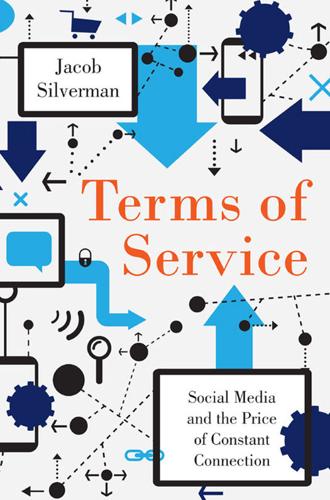
Terms of Service: Social Media and the Price of Constant Connection
by
Jacob Silverman
Published 17 Mar 2015
You might decide you don’t care anymore, brush off self-consciousness, and start being a little crazy on social media. You could find refuge in anonymity. You could write a book or try for some more radical critique. Or, finally, you could quit. Blow it all up. Delete what data you can, close your accounts. Install the Tor browser. Ditch your iPhone. You don’t need to go detox in the country. You won’t win any great victory except to claw back a little privacy and interiority for yourself. (In a milieu so obsessed with questions of narcissism, it’s fitting that by turning away we can recover some part of ourselves.) It’s a Pyrrhic victory through and through.
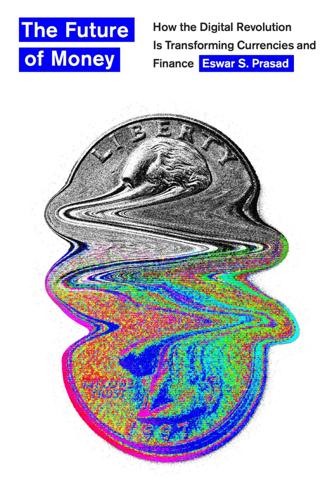
The Future of Money: How the Digital Revolution Is Transforming Currencies and Finance
by
Eswar S. Prasad
Published 27 Sep 2021
The site also provided some legal goods such as art, erotica, jewelry, and writing services. Ulbricht was not without scruples—the site banned trade in child pornography, stolen credit cards, assassinations, and weapons. Only Bitcoin could be used on Silk Road, with merchants and clients using The Onion Router (TOR) browser and virtual private networks (VPNs) to obscure and mask their true identities. The Silk Road was made possible by Bitcoin, as were other darknet offshoots that soon followed. Bitcoin provided a payment infrastructure that allowed darknet marketplaces to thrive, in much the same way that PayPal helped the rise of the online auction site eBay.